2023 - 2025
Hopper’s Lodging Dashboard
From internal operations to external partnerships
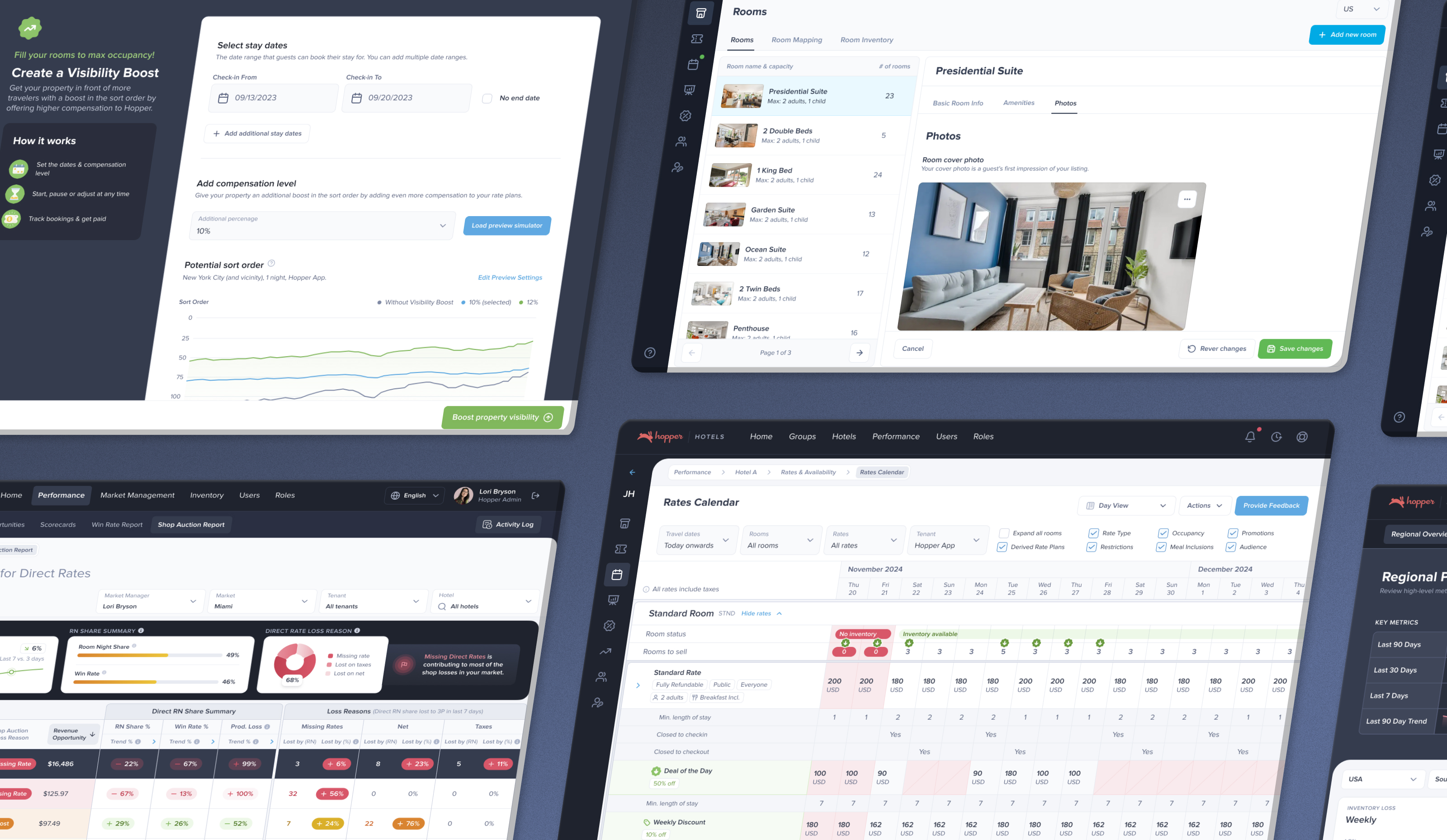
CONTEXT
Growing demand within an evolving company
Originally known as a consumer-focused travel app, Hopper has evolved into a global fintech platform for travel providers — delivering competitive travel supply solutions to a growing network of B2B partners. As lodging partnerships expanded, however, the internal tools supporting them struggled to keep up. The lodging team needed a secure, scalable dashboard to manage hotels and vacation rentals across multiple booking channels.
CHALLENGES
Fragmented tools & complex data
Dense, inconsistent data, inflexible proprietary databases, and outdated software created significant friction for market managers, engineers, and lodging partners. These disconnected systems made day-to-day operations cumbersome and inefficient. This was not a challenge that could be solved with a few workshops — it required a holistic design and systems approach.
As the sole designer, I collaborated cross-functionally with six internal teams and partnered directly with hotels to understand their unique operational needs.
APPROACH
Evaluated all internal operations
From hotel outreach, onboarding, integration, contracting, market management, and support, I immersed myself in their day-to-day responsibilities and tools to identify opportunities or discrepancies in process.
Facilitated on-site feedback sessions with hotels
I visited various hotels in the US to assess their pain points with competitor experiences, industry standards, and Hopper (if already partnered). I conducted the same inquiries virtually with hotels abroad. Building these relationships allowed me to meet with them periodically for feedback on prototypes.
Consulted with stakeholders for integration & build
It was imperative to work synergistically between market management and engineering teams. We investigated the cost of technical restraints versus market share goals, identified potential bottlenecks, and regularly iterated on collaborative processes.
SOLUTION
Designing a scalable foundation
Hotels and vacation rentals presented distinct connectivity and operational challenges, requiring separate dashboards. I unified both under a single, flexible design system that could scale across user types, roles, and permission levels — from internal market managers to external hotel operators.
I led the end-to-end design of this system, creating a modular asset library and adaptable components to enable faster product launches. The framework has since been adopted by Hopper’s air supply team as well, expanding its impact beyond lodging.
Note: All hotel names and data have been replaced with placeholder content to protect privacy.
Landing page & sign up
Hopper supports numerous lodging providers, which allow hotels to connect all relevant information and inventory directly.
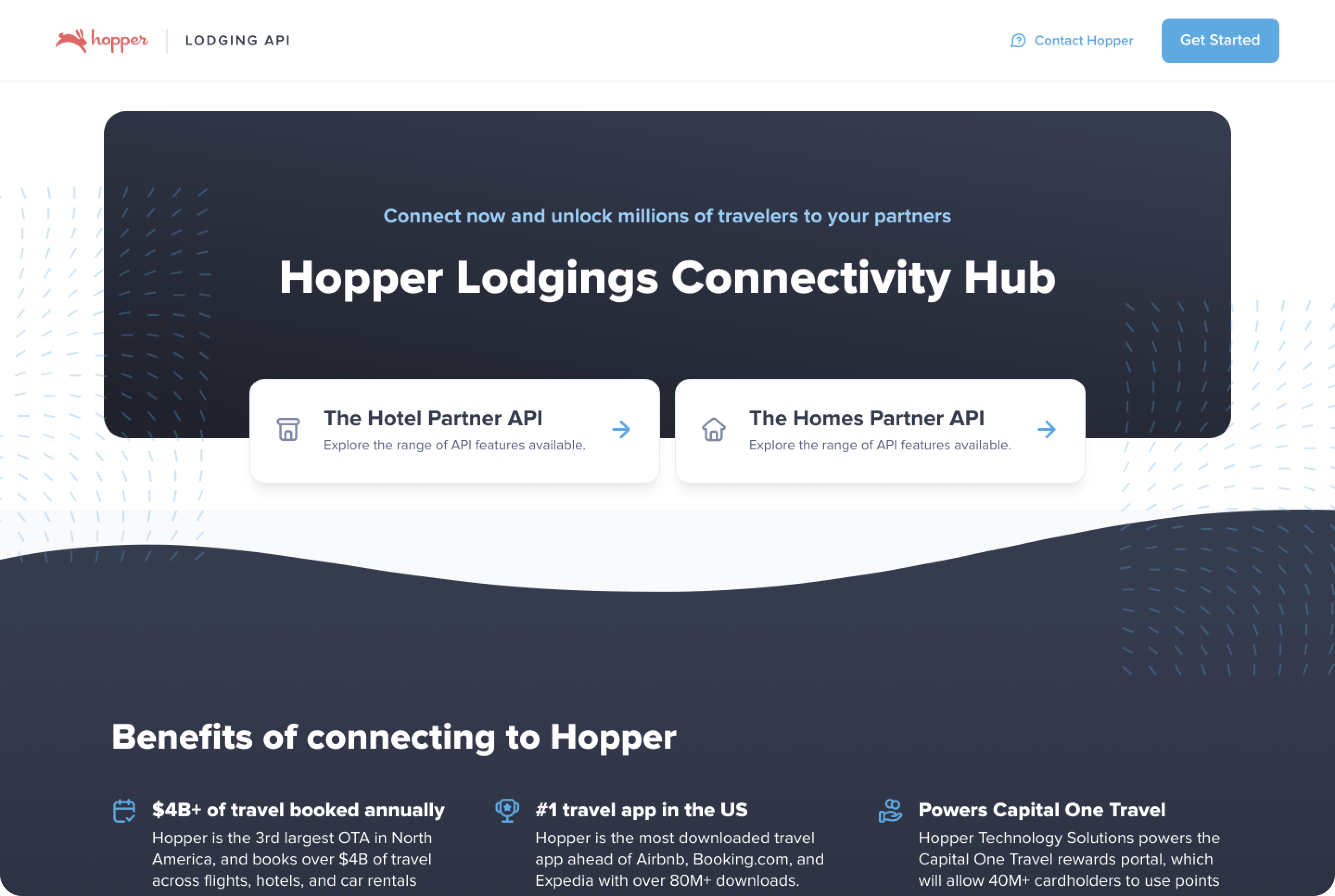
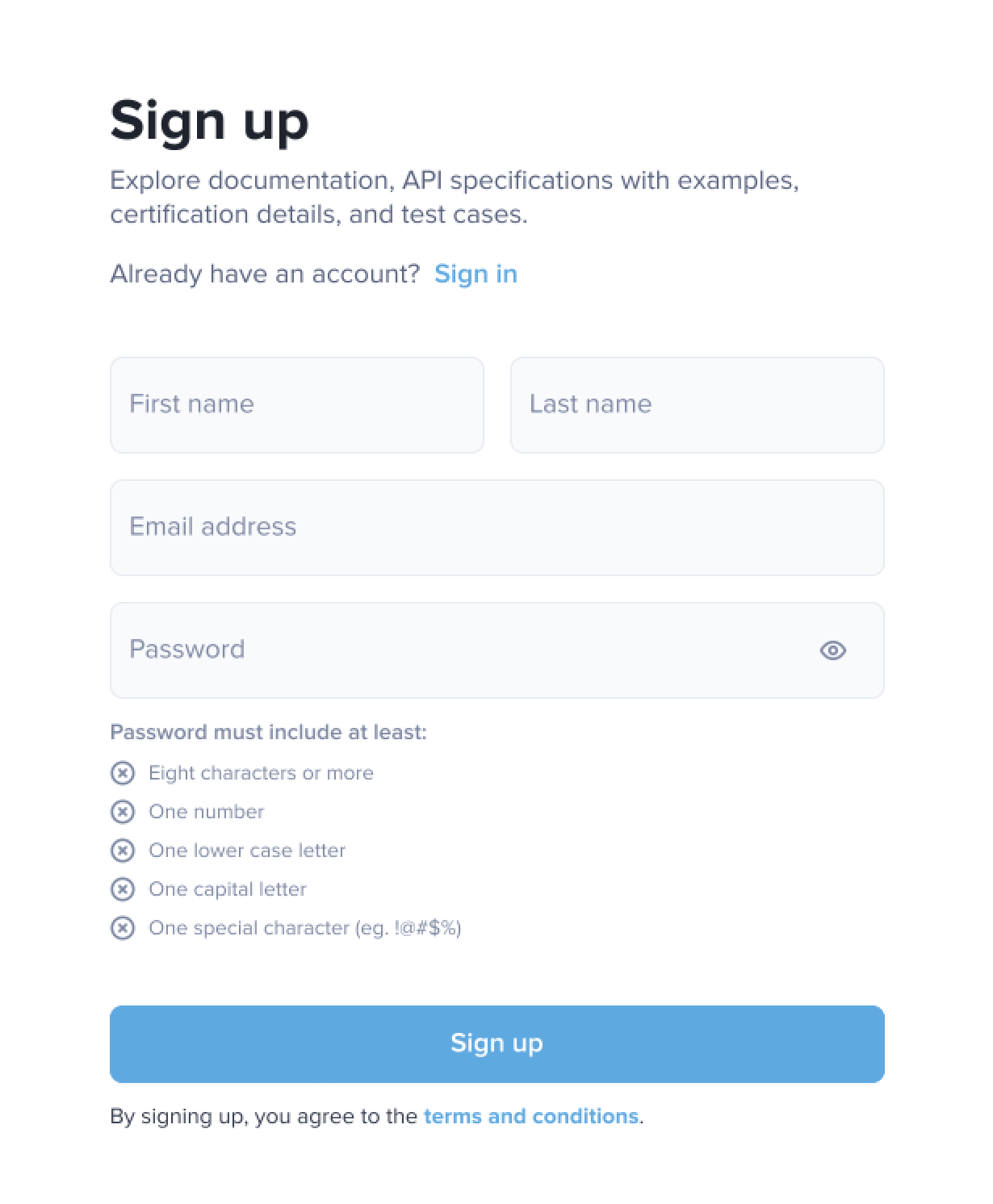
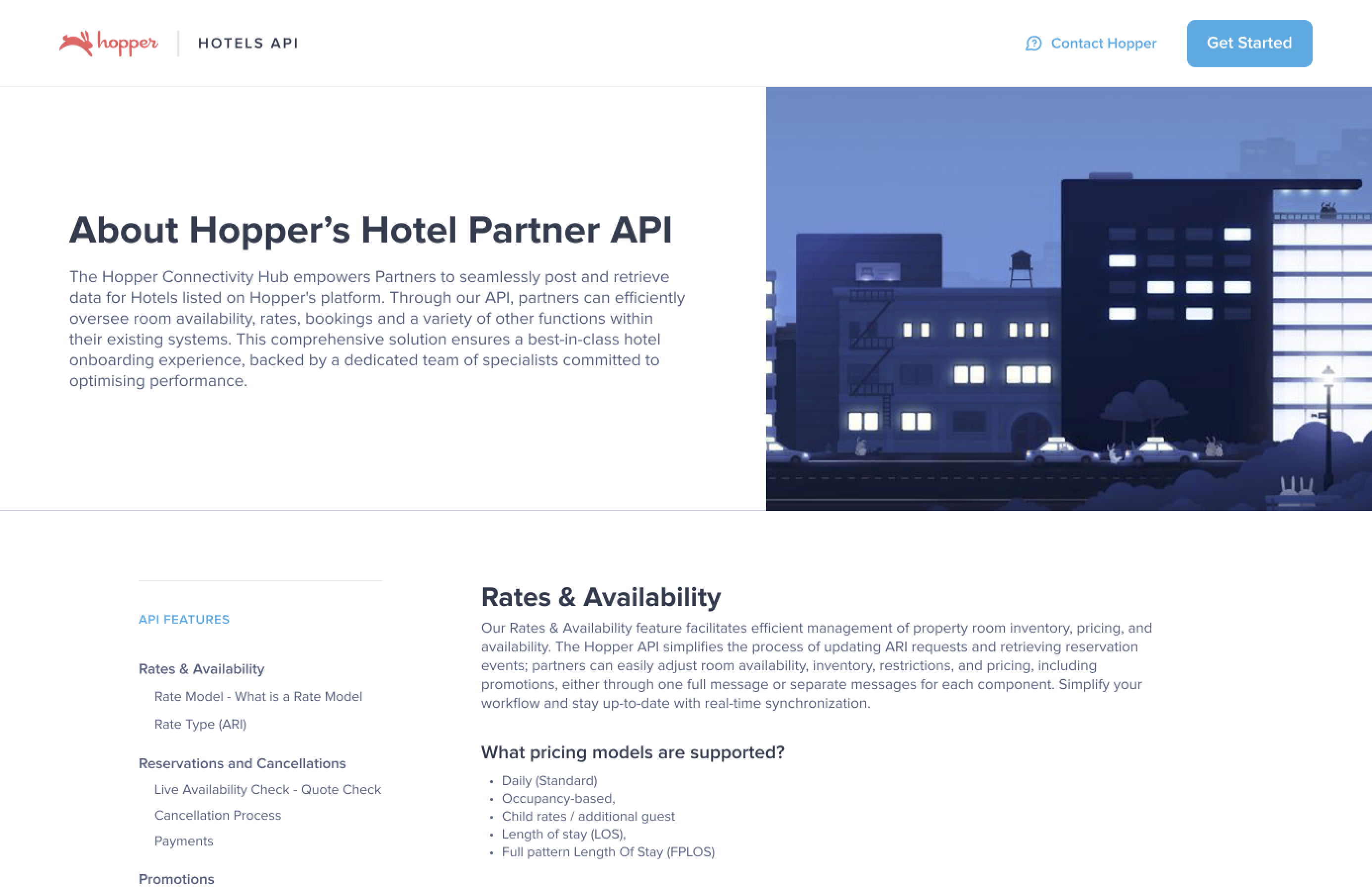
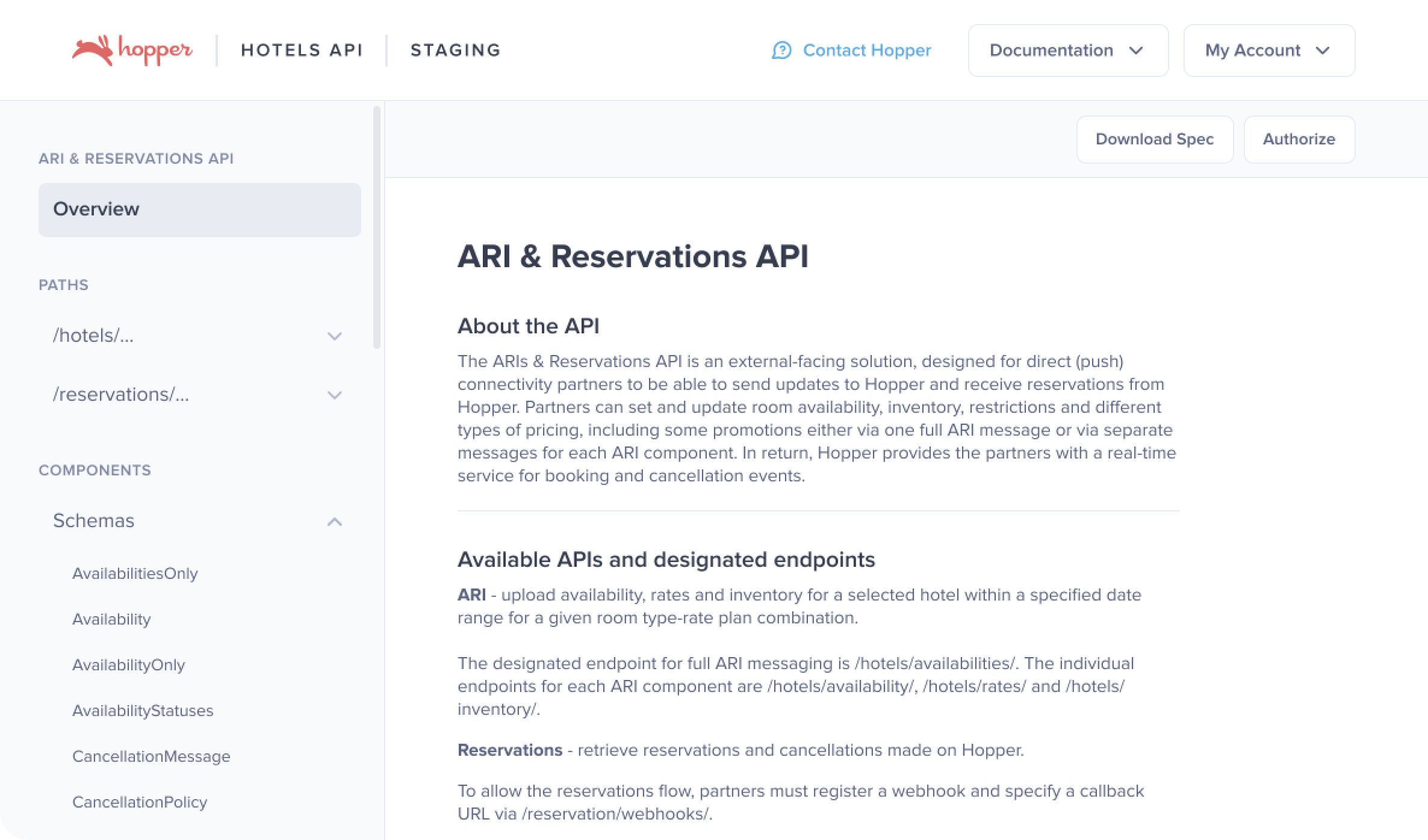
API & documentation
Connectivity documentation was updated and available to all verified users.
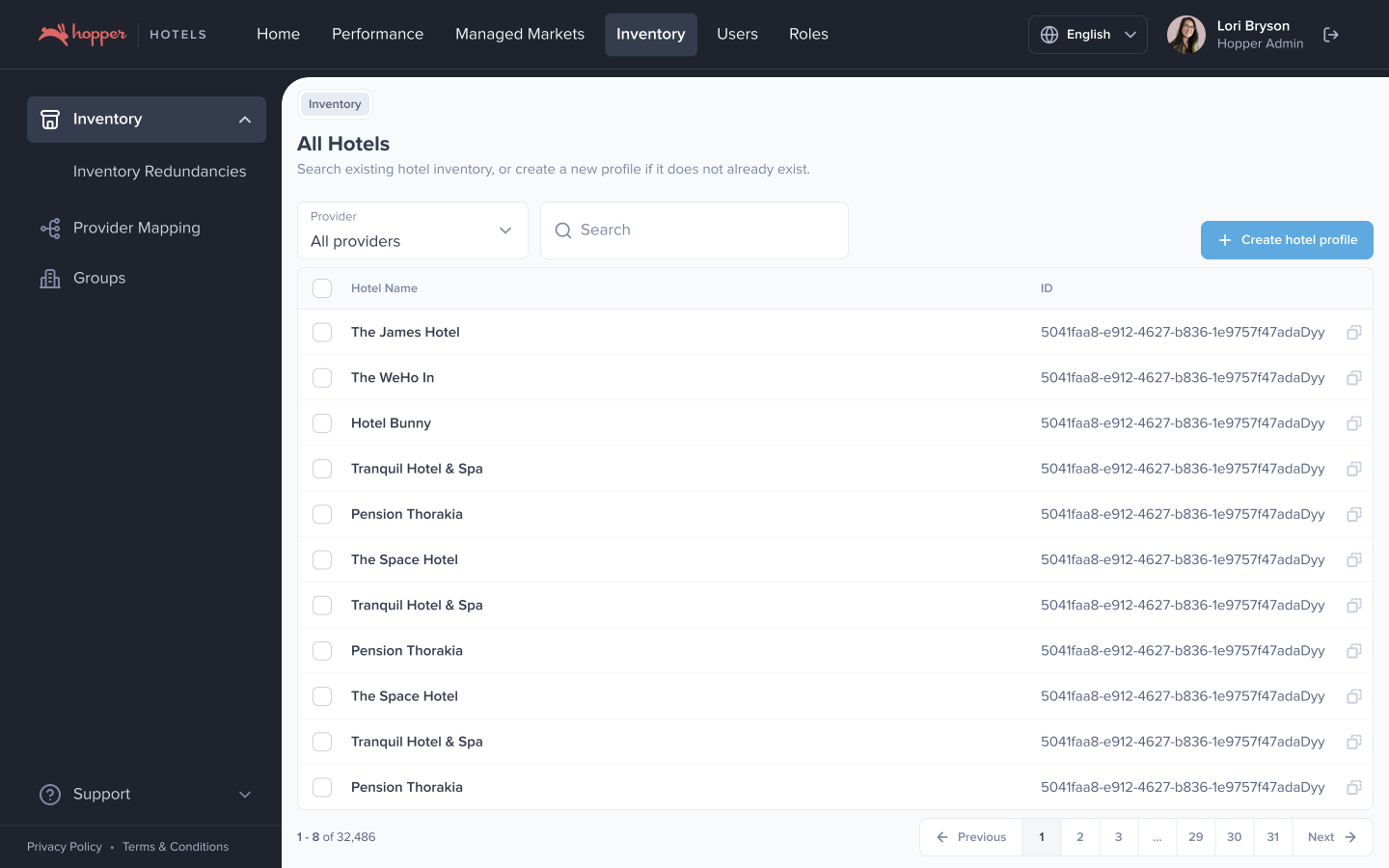
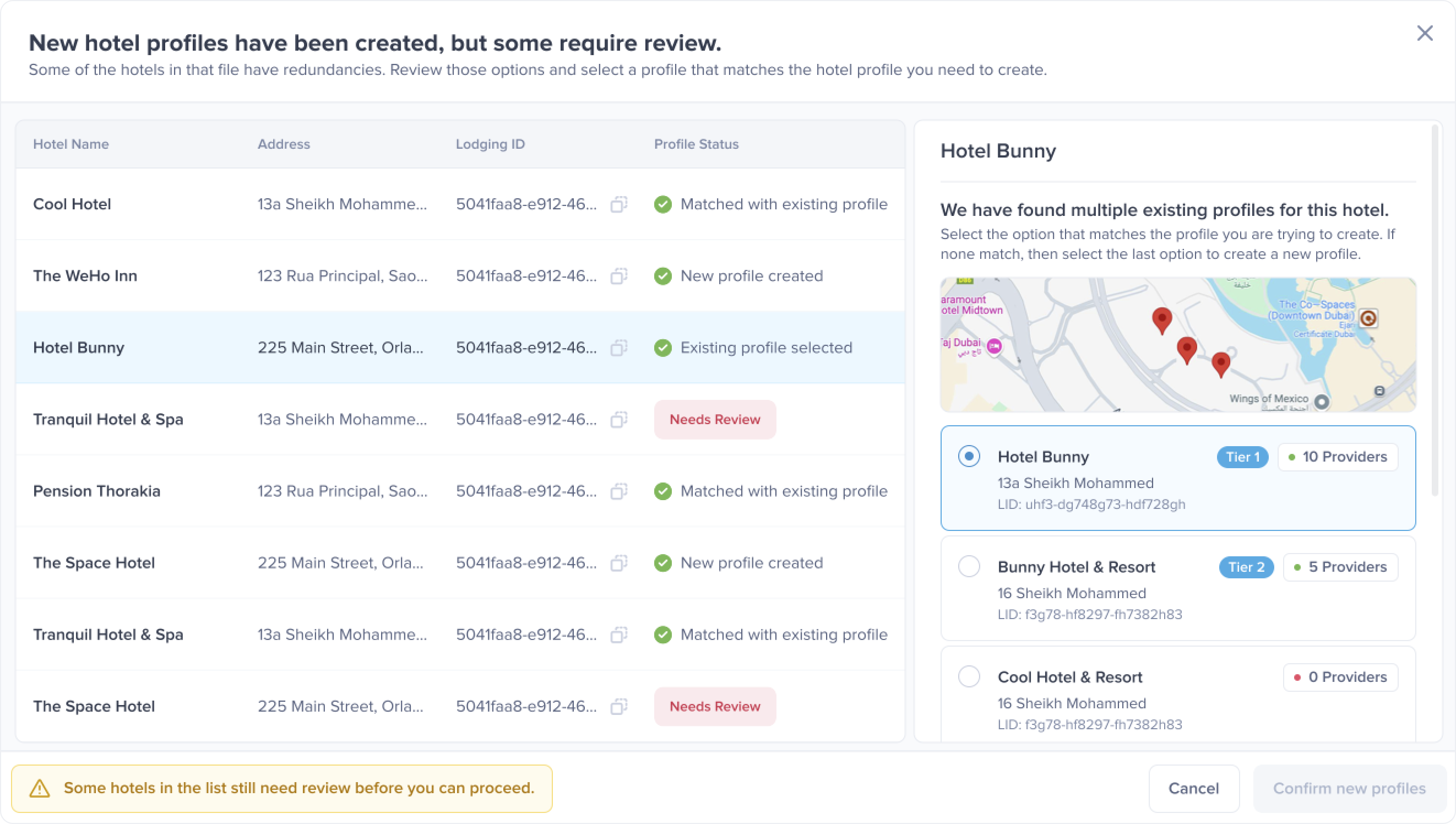
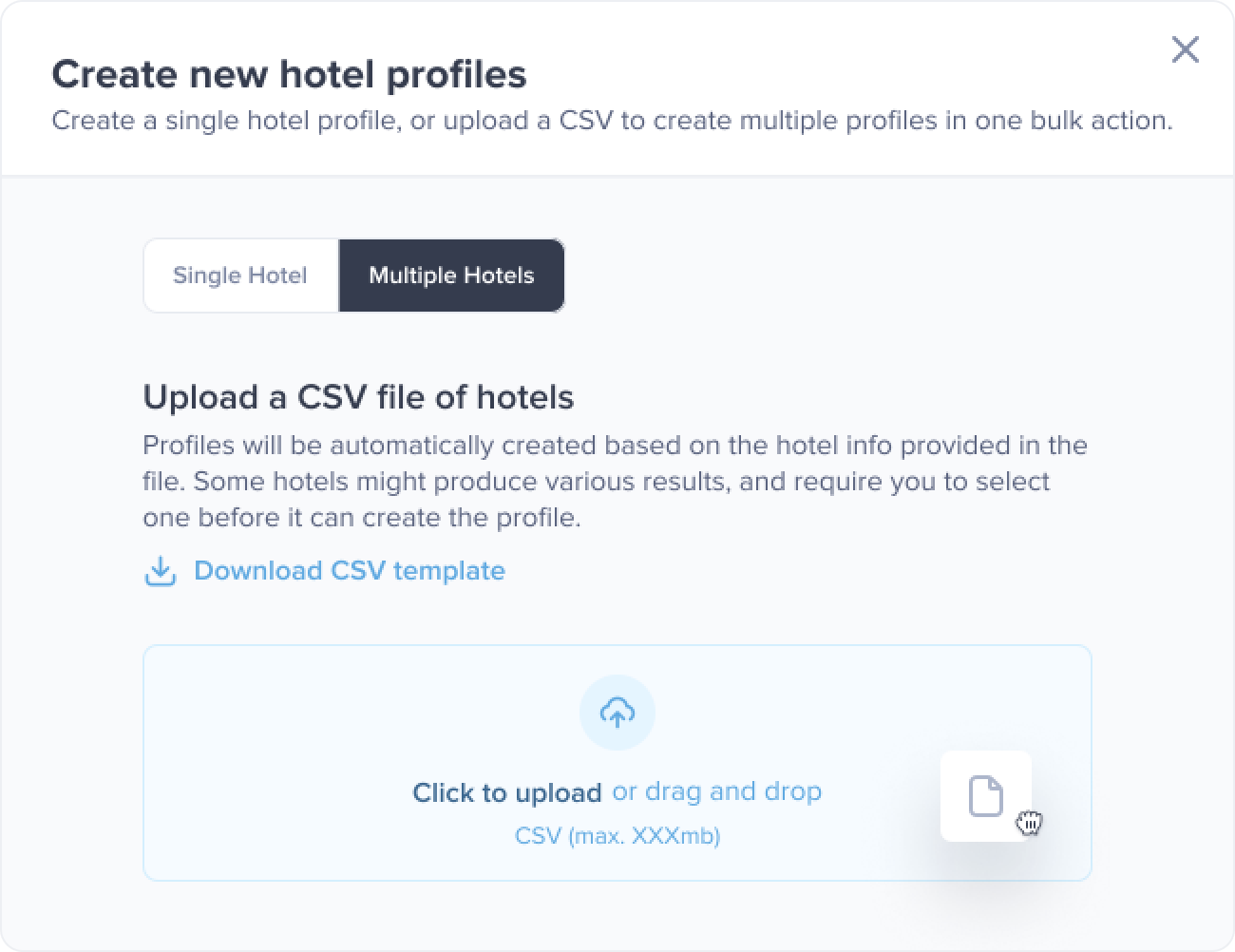
Hotel onboarding
Hopper Market Managers can also personally onboard hotels once a contract has been signed.
As for large hotel chains, multiple hotel profiles can be instantly created by uploading a CSV file, with location verification occurring all in one experience.
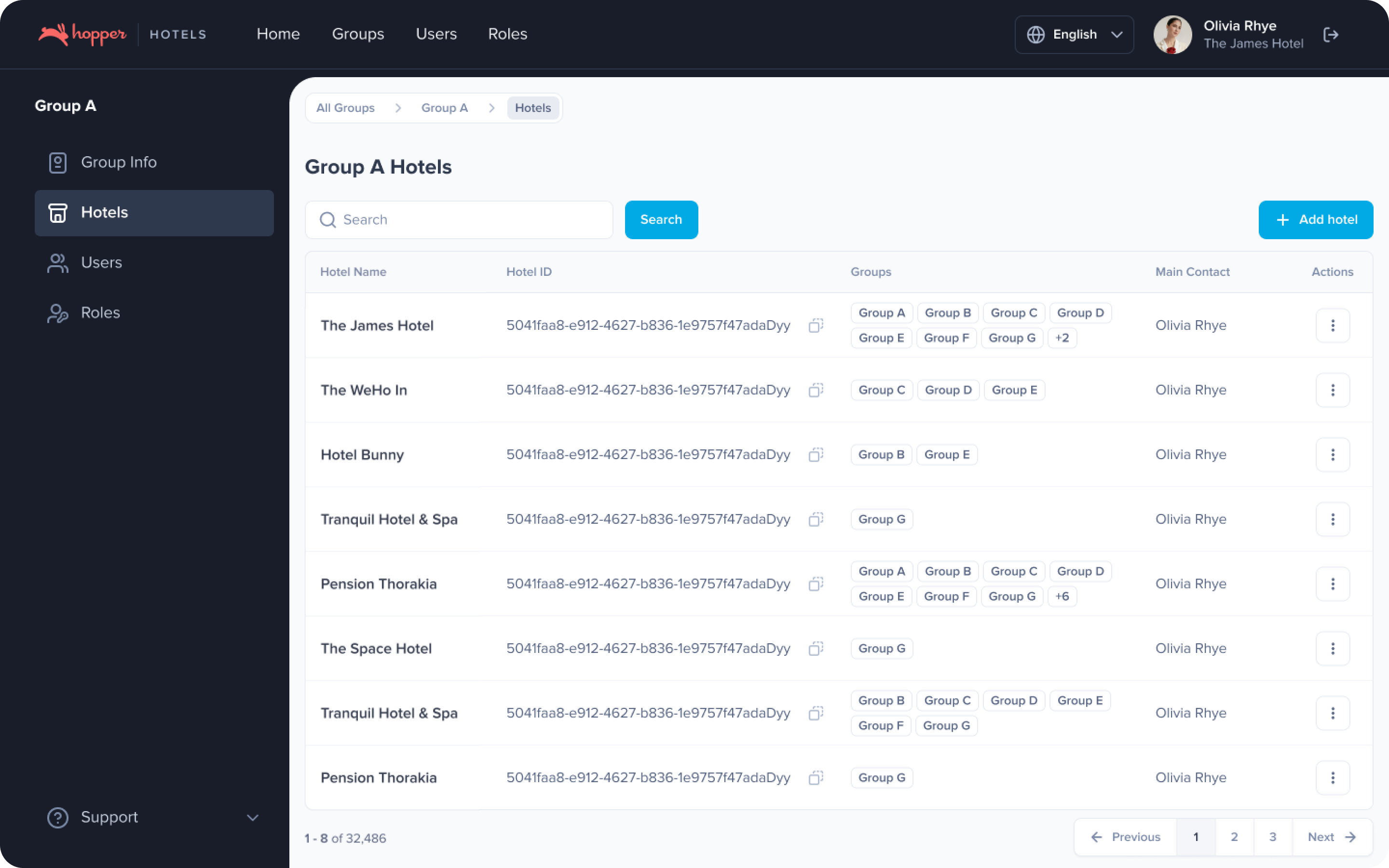
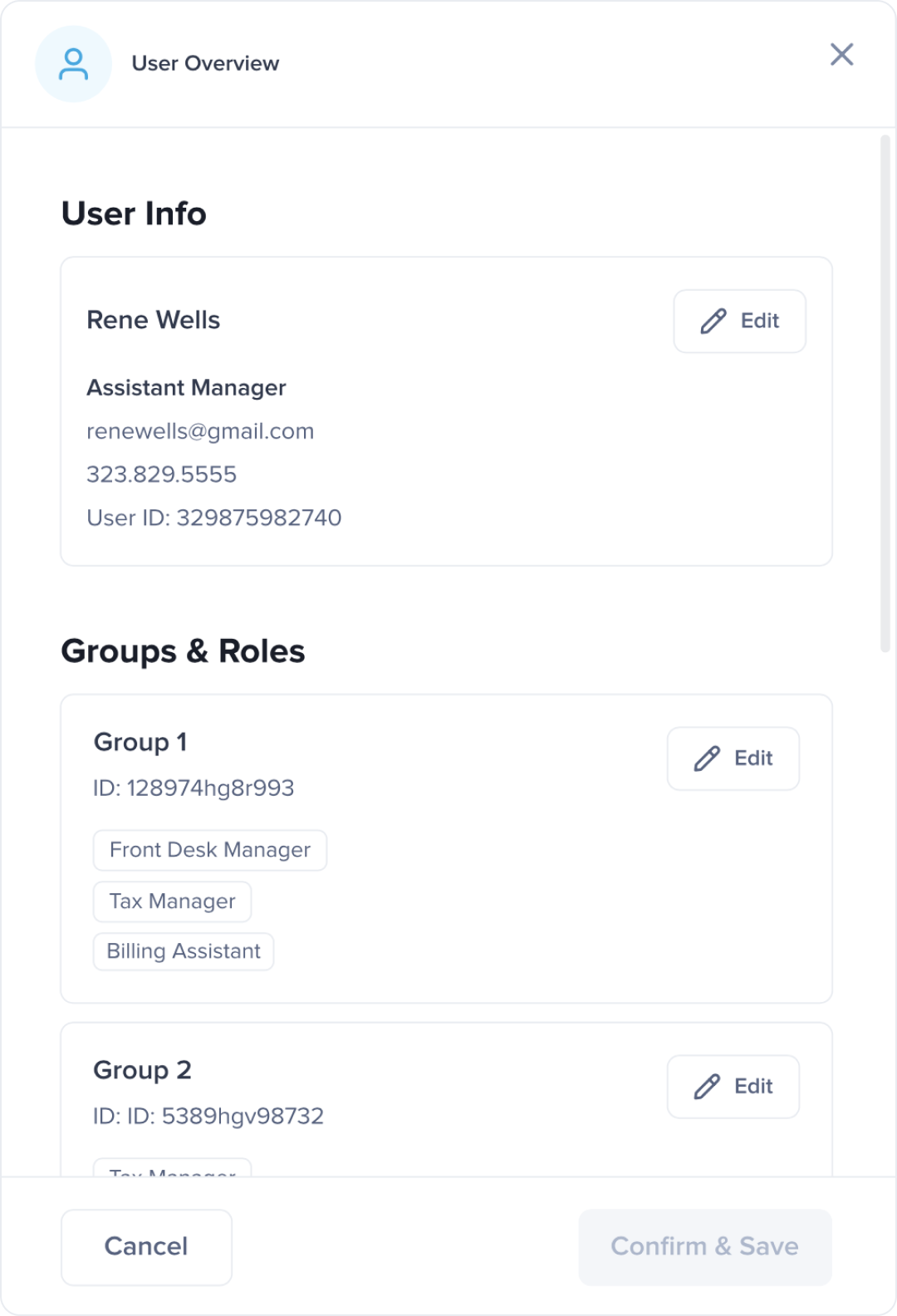
Hotel Groups
Large hotel chains and collections are automatically stored as “Groups”. Hopper admins can also create custom groups based on parameters such as contracting with B2B partners, or markets unique to location, season, or attraction.
Having these designated groups makes it easier to assign and restrict access to various market managers that work for Hopper.
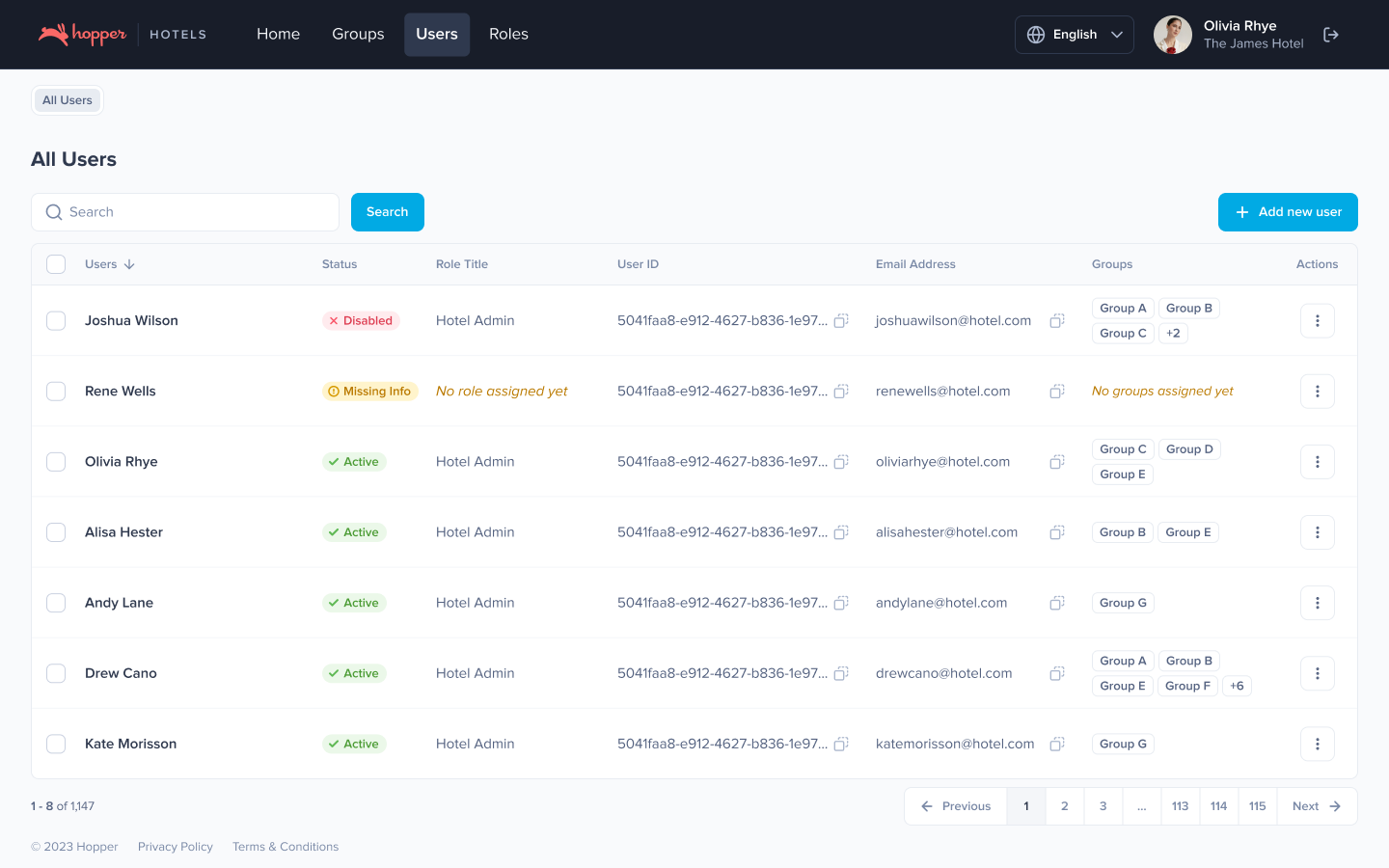
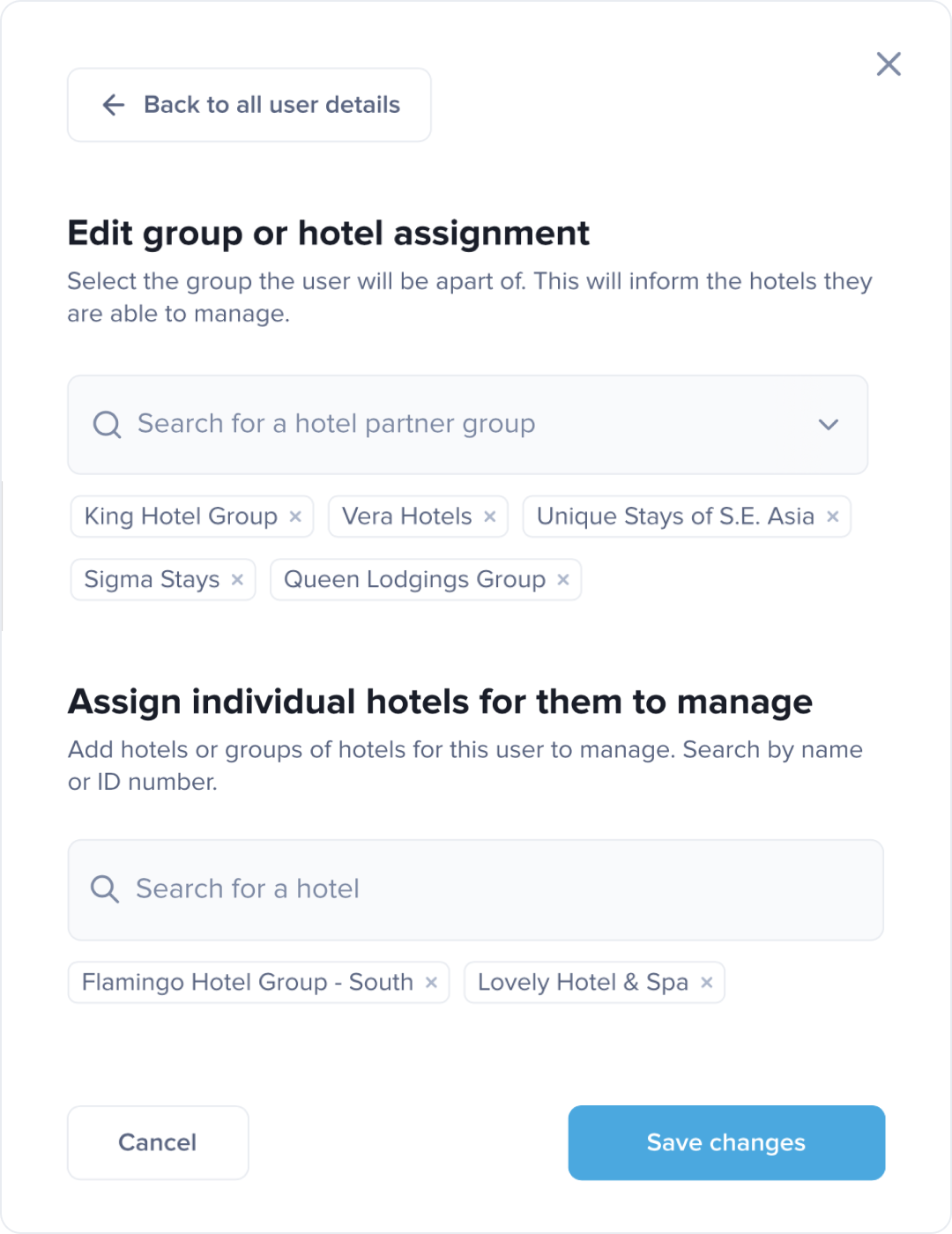
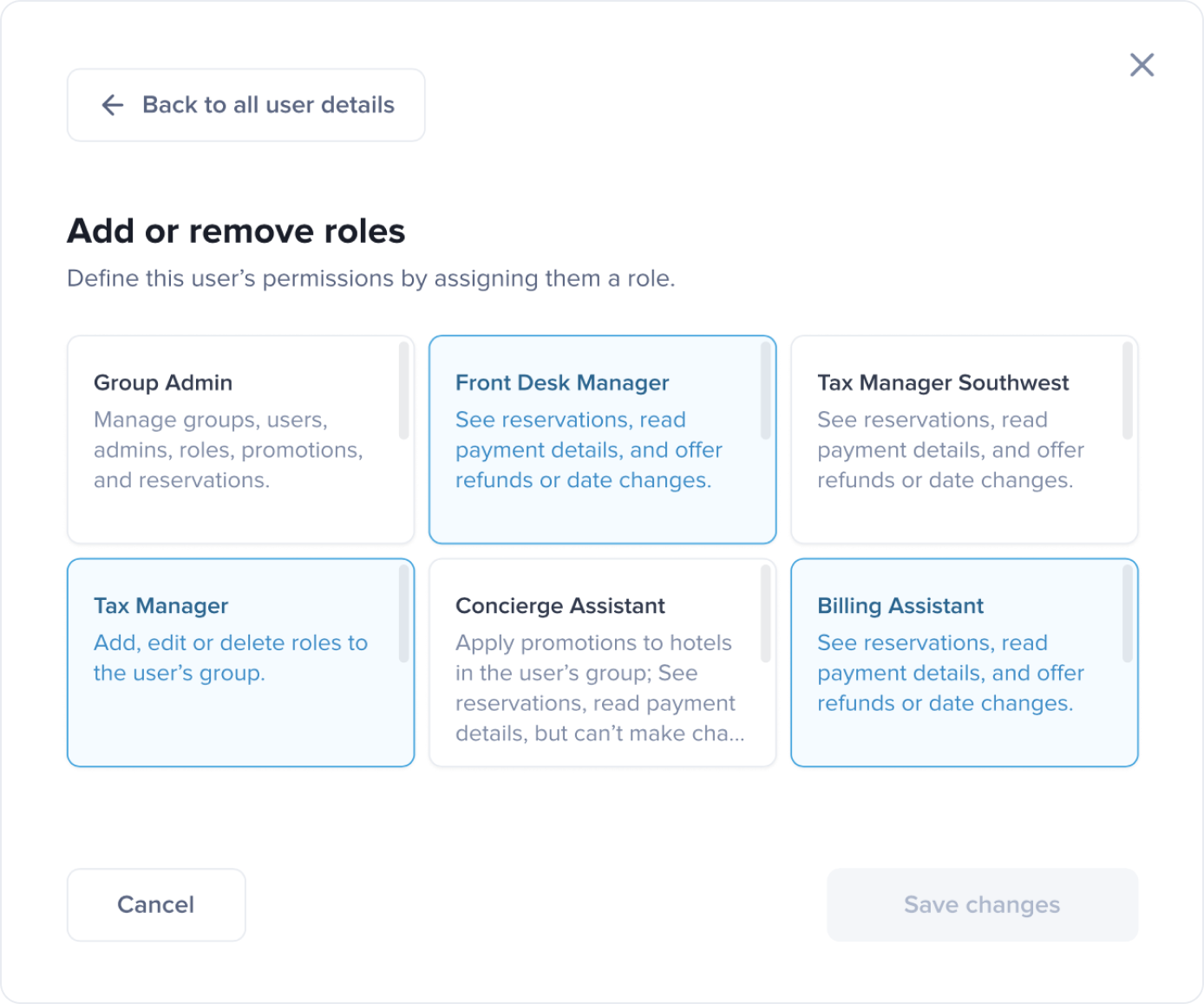
Users & roles
New users must be invited by a Hopper or hotel admin, to ensure that those new users are given access to the right hotels and/or Groups. Additionally, users must be assigned a role, which has pre-defined permissions, or a customized role with unique permissions.
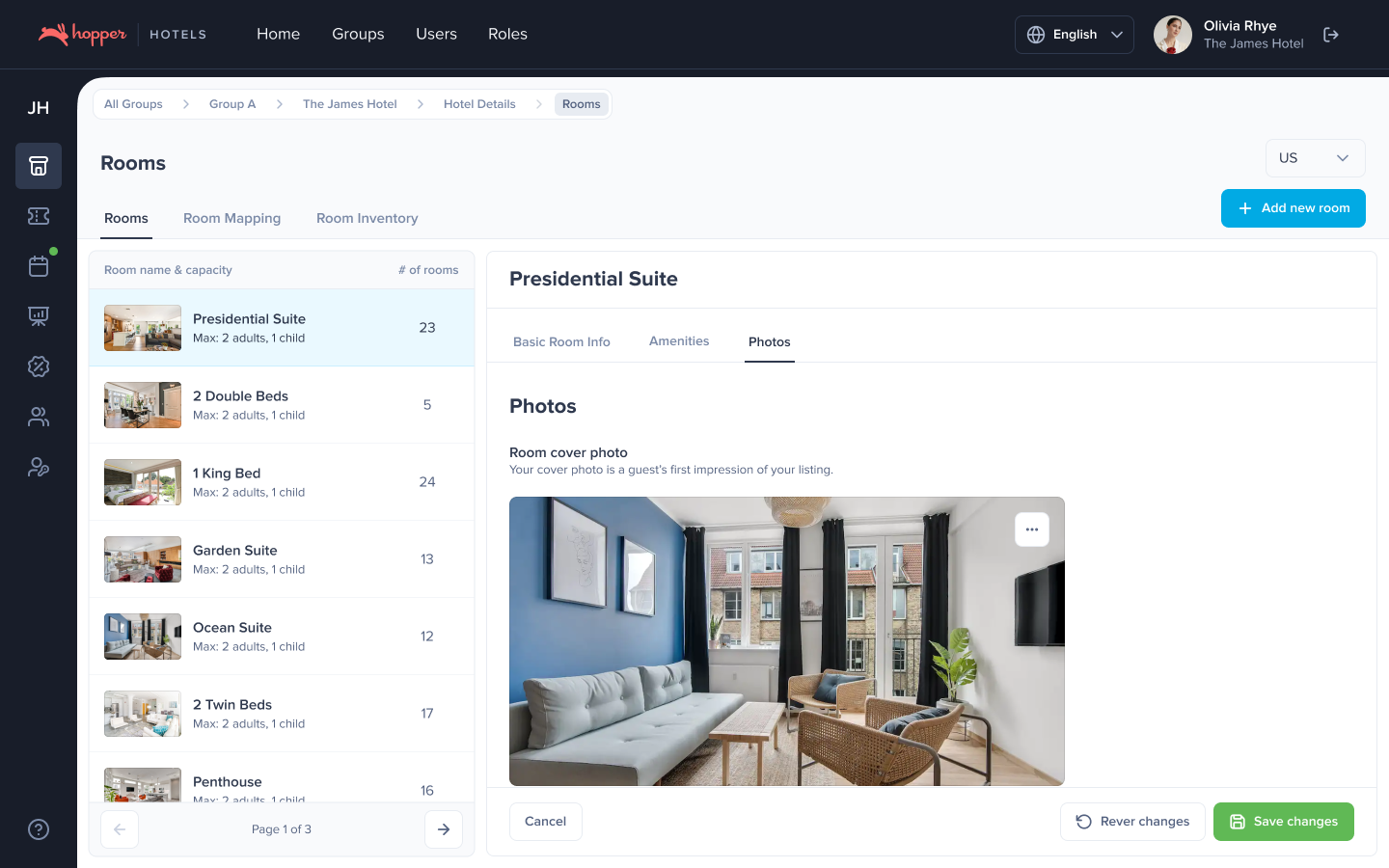
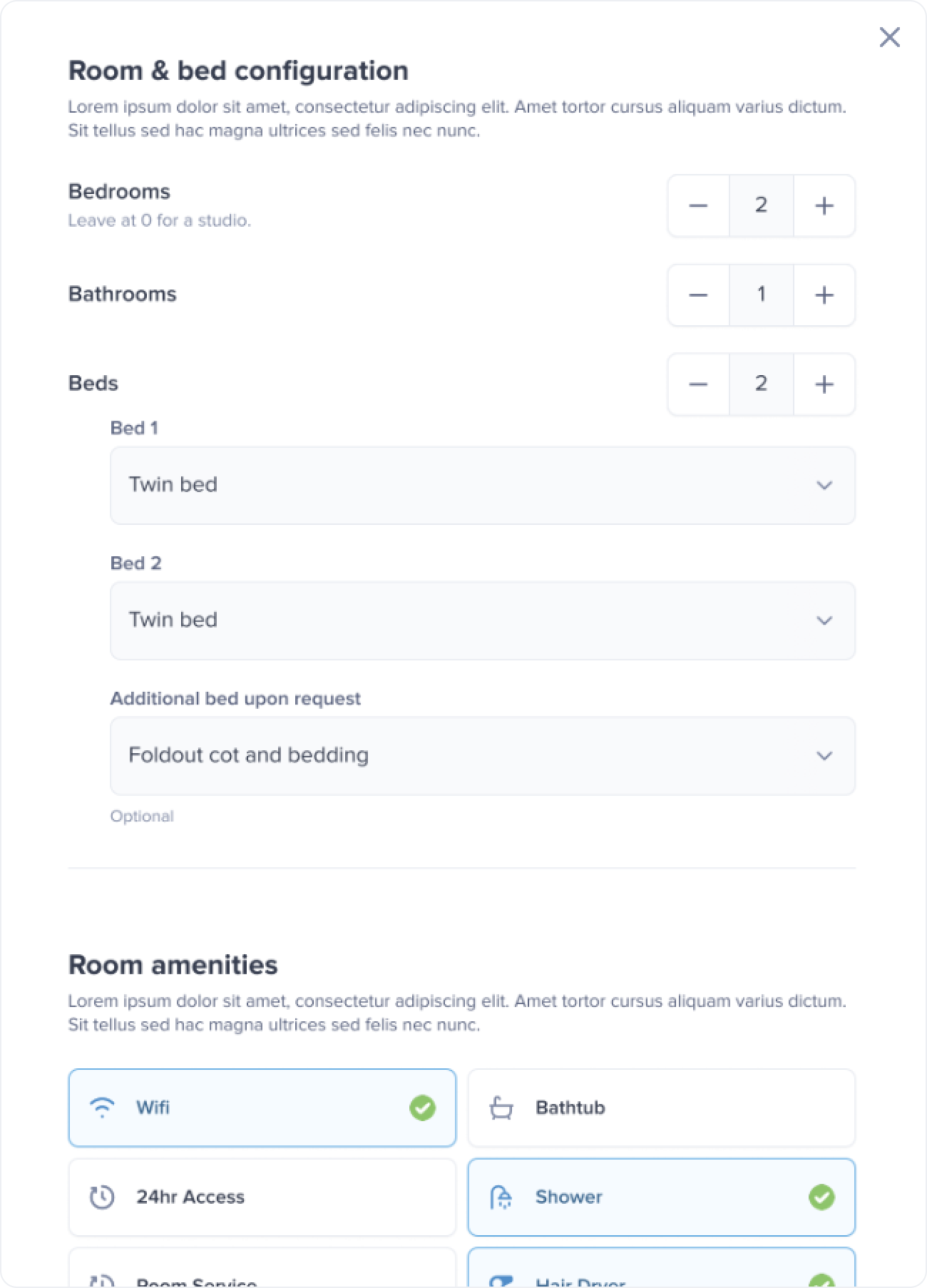
Hotel & room content
Hotel and room content is automatically imported from connected providers set up during onboarding. Users can review this content to ensure accuracy and keep information up-to-date. In rare cases of sync issues or unique requirements, content remains editable directly from the Hopper dashboard. Users can also create new room types using a simple, streamlined form, enabling quick setup and launch.
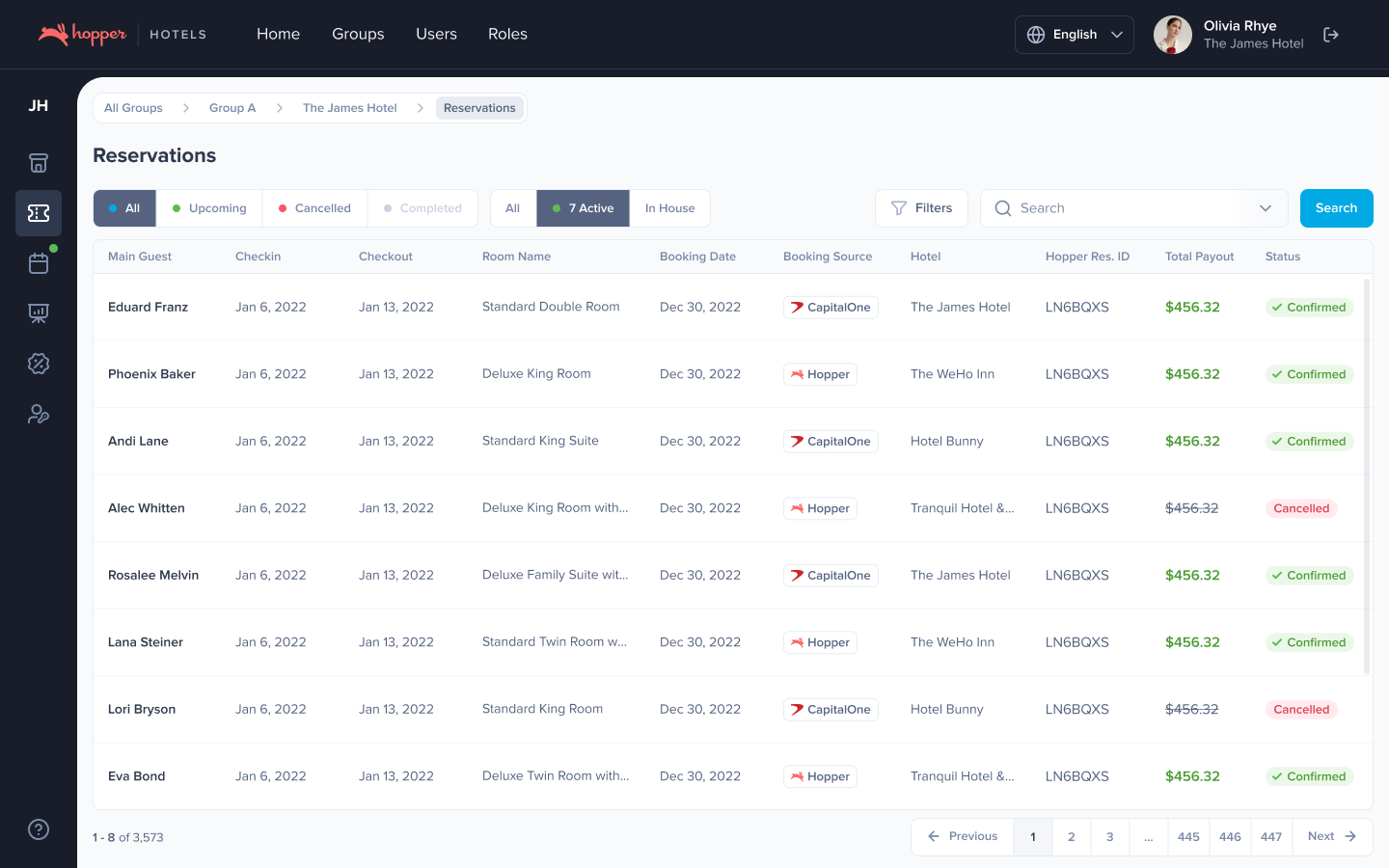
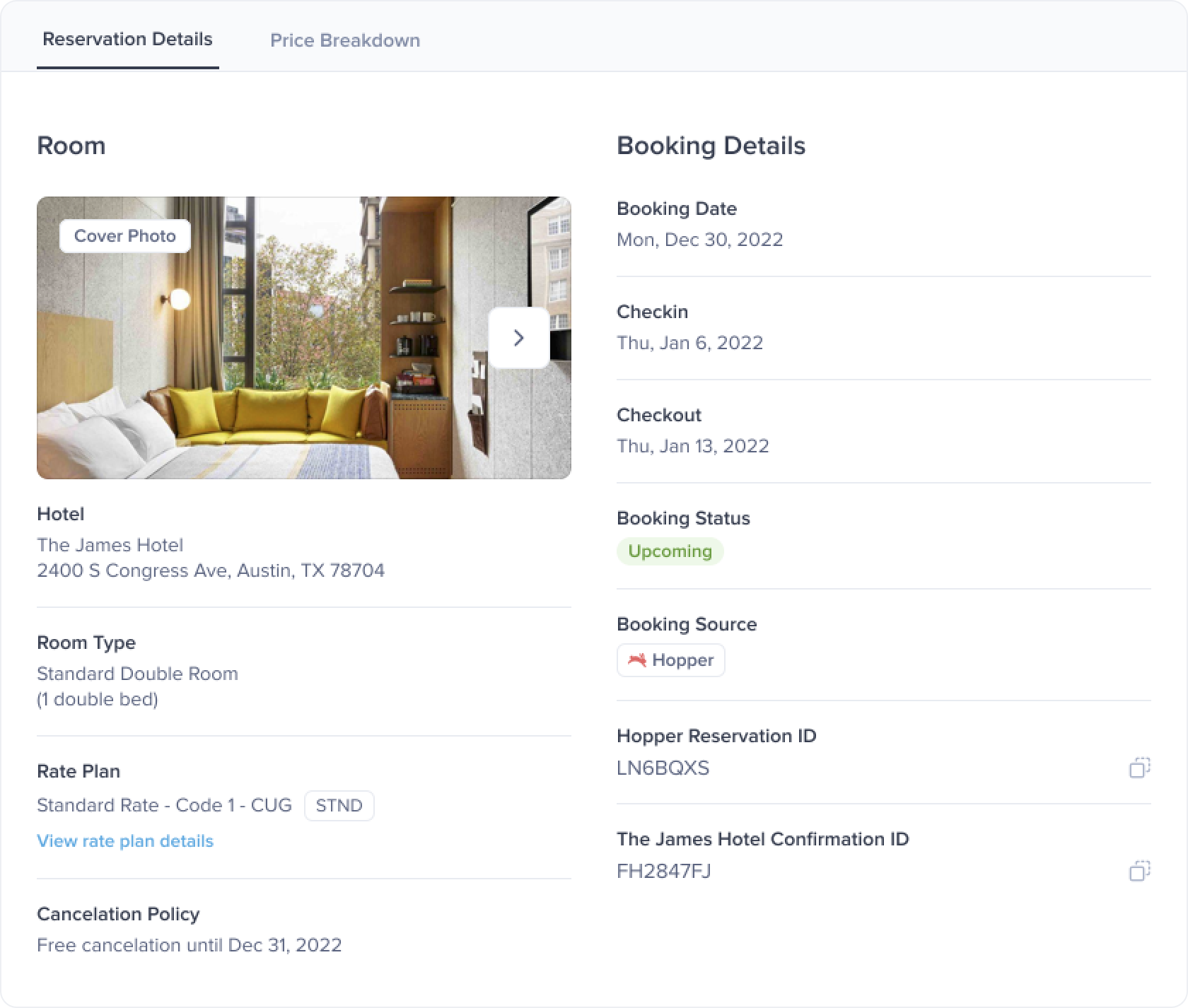
Reservations
Aside from the rates calendar, the reservations page is a vital source of truth for hotel admins. Often during check-in, a front desk personnel needs to quickly query a guest’s reservation to verify booking details on the spot.
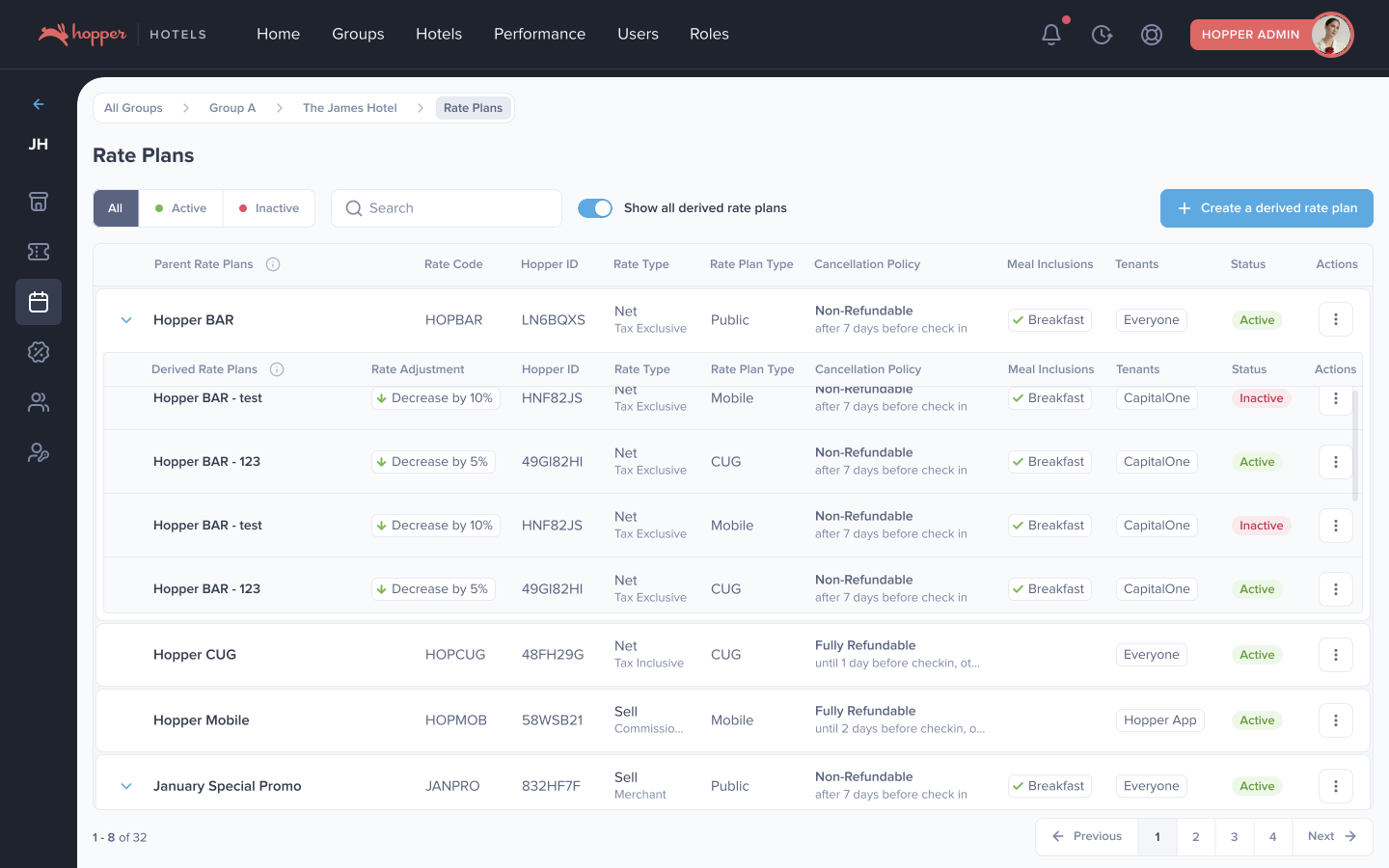
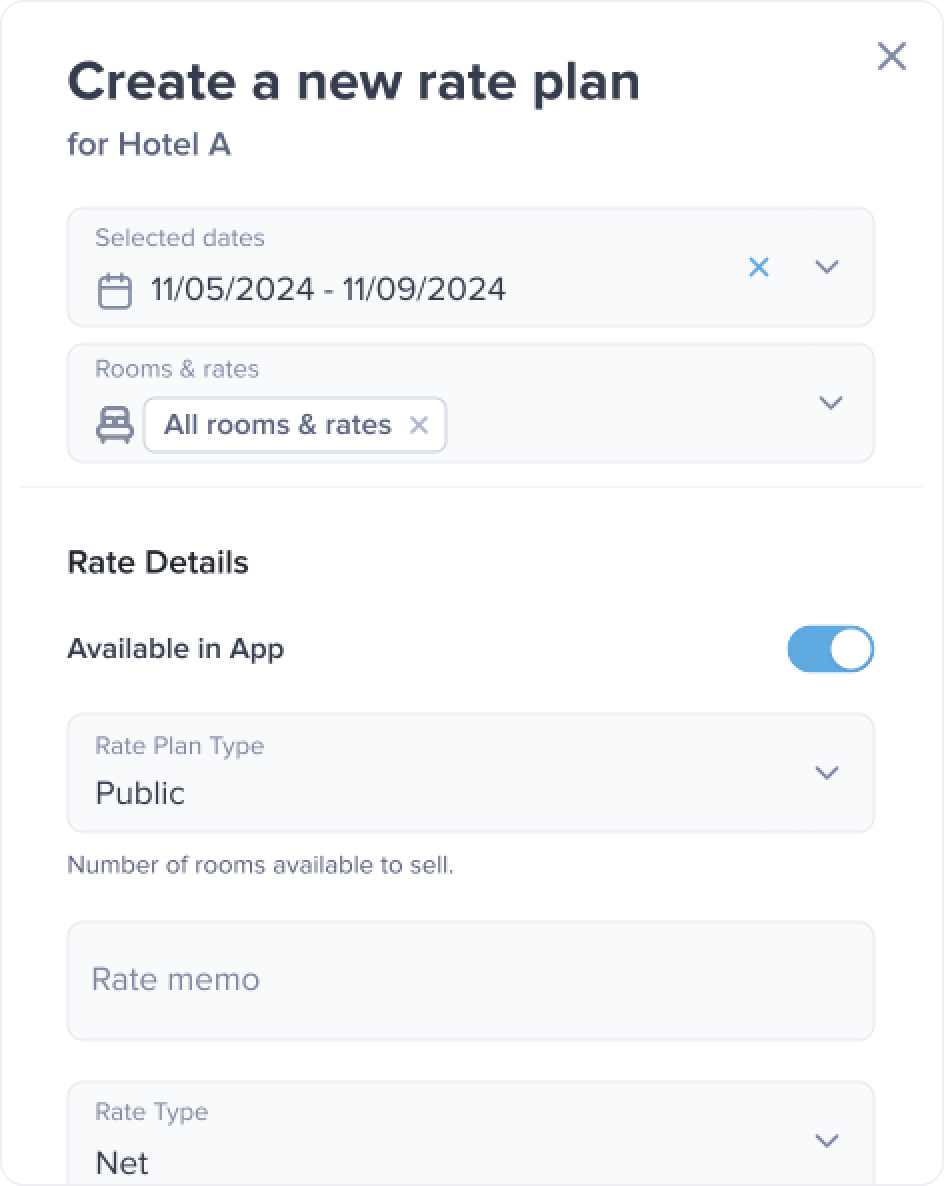
Rates & Availability
Rate plans can be viewed and managed from a list table or a calendar view which also displays availability. The Rate Plans page is preferable for quickly locating a rate plan to be edited. Rate plans can also be duplicated and customized, known as “derived” rate plans. Derived rates are inherently linked to their parent rate plan’s availability.
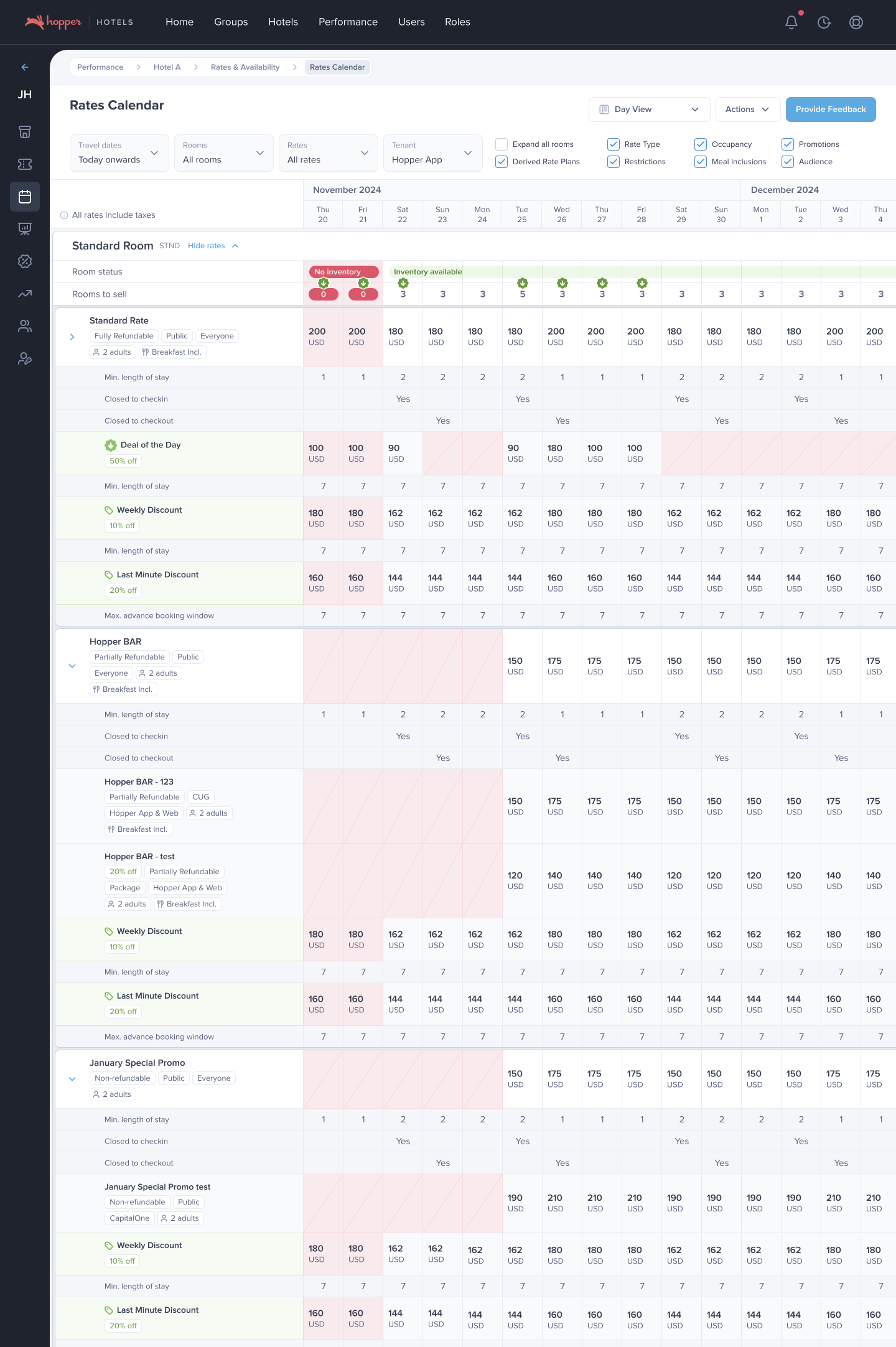
Availability Calendar
The rates calendar is one of the most visited pages for any given hotel user. They can get an immediate sense of where their inventory stands within any date range, review what rates have active promotions, or if they need to make any adjustments based on demand, seasonality, etc.
Users need to glean as much information as possible, while easily navigating and adjusting the view based on priorities. As a result, visibility of different types of details can be toggled on or off.
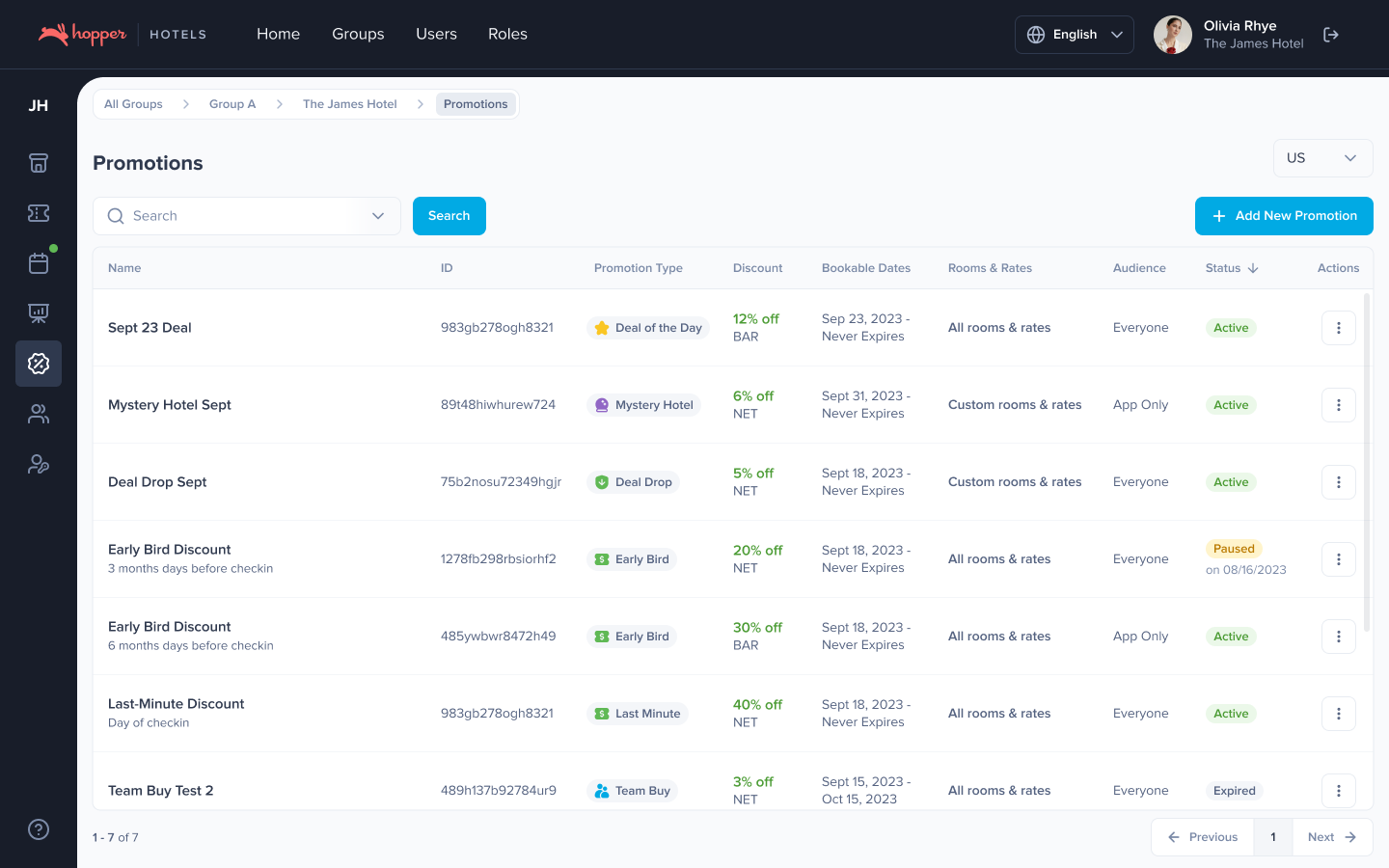
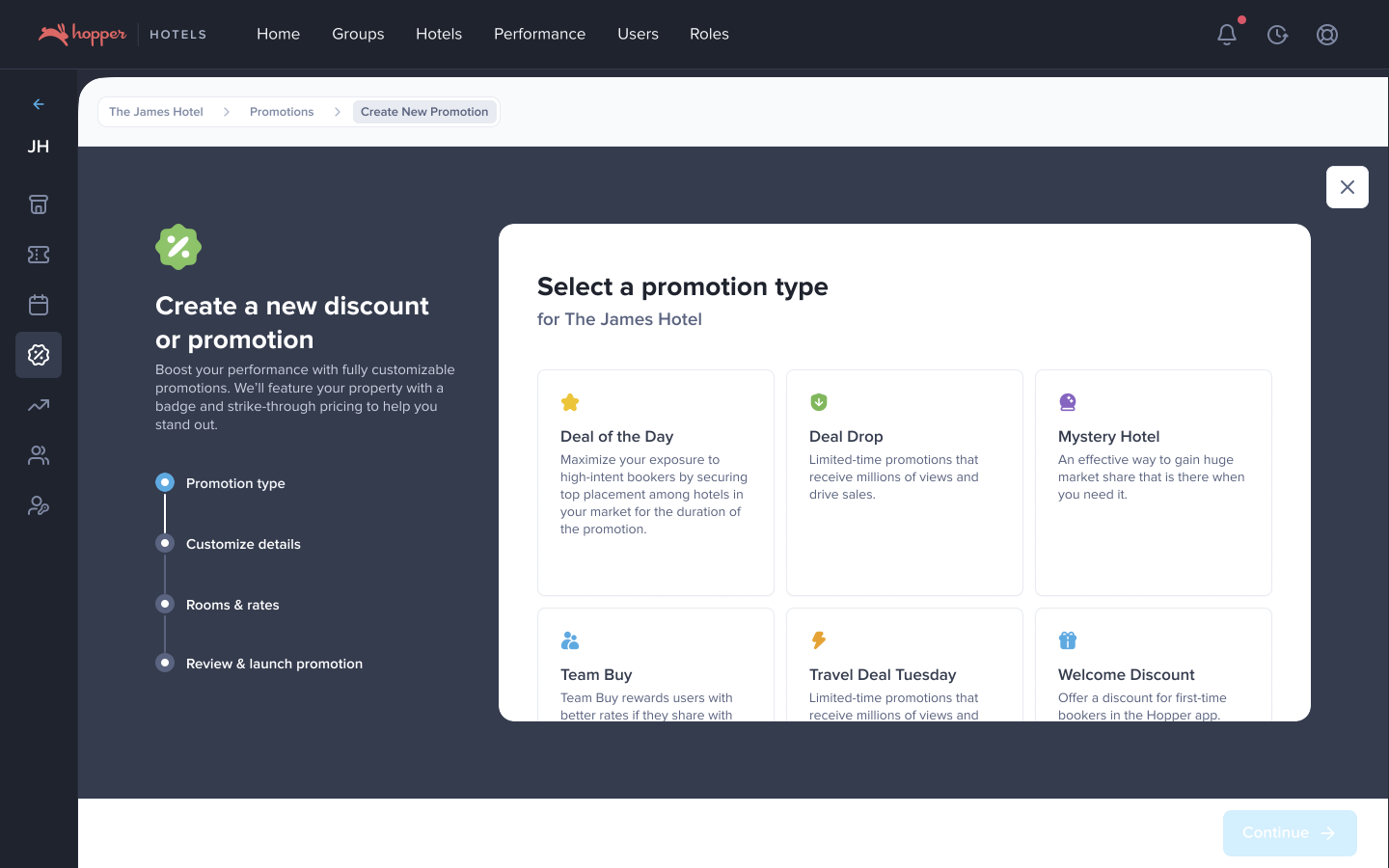
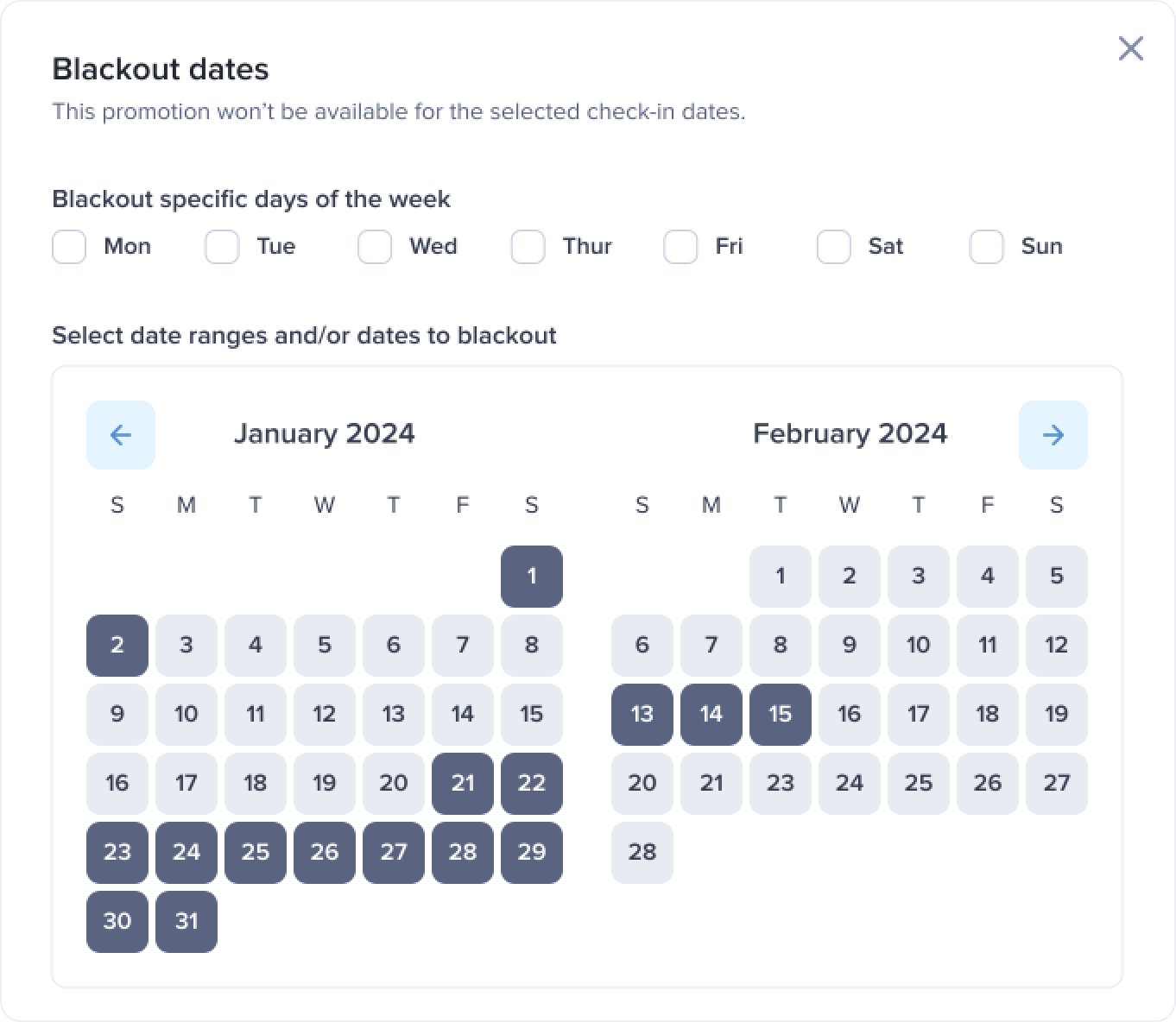
Promotions & discounts
Hopper encourages hotels to launch discounts and promotions directly with us. Doing so provides hotels with unique merchandising and placement on our booking partners, and keeps our rates low and competitive.
It was important to make this experience easy to engage with, but also powerful in its customizations and restrictions.
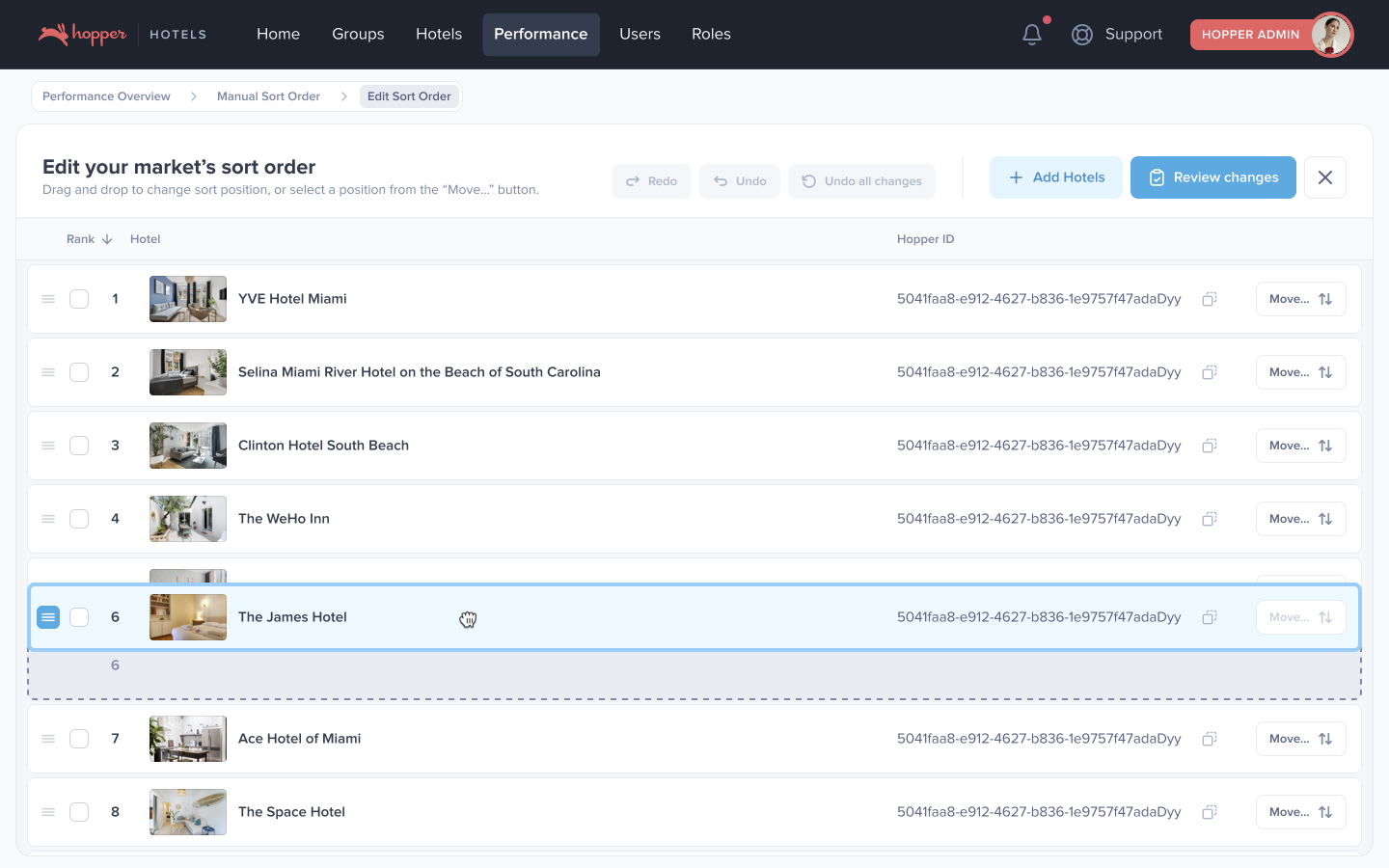
Rank override
While Hopper is dedicated to innovating sort algorithms catered to our booking partners, there are instances where market managers need to override sort order, for various complex reasons. This tool is highly restricted, and each market manager is only able to apply customizations to their assigned markets.
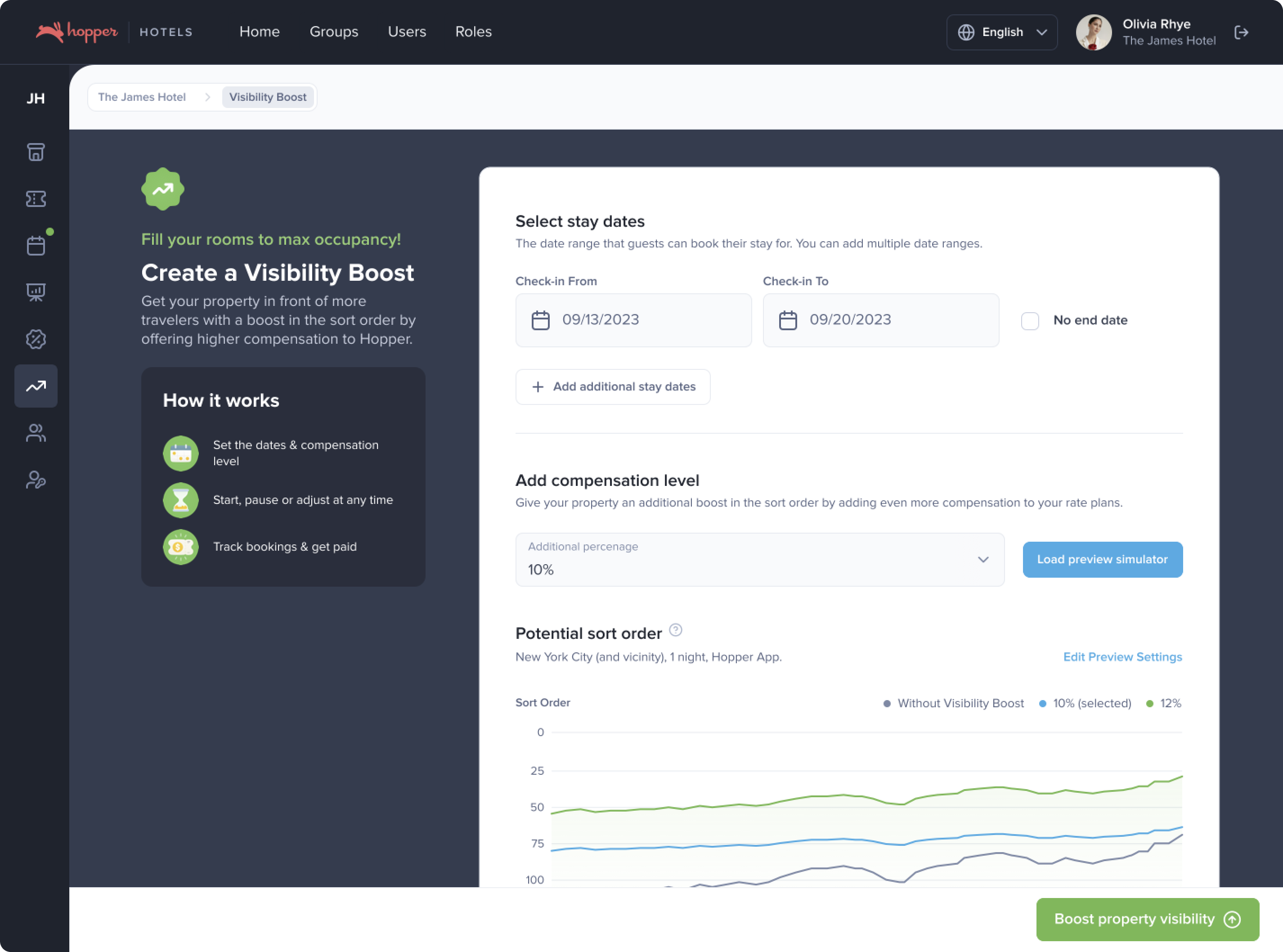
Visibility Boost
Hotels can improve their performance and ranking by increasing Hopper’s compensation with a Visibility Boost. A projection report is shown to demonstrate the potential incentive based on level of compensation.
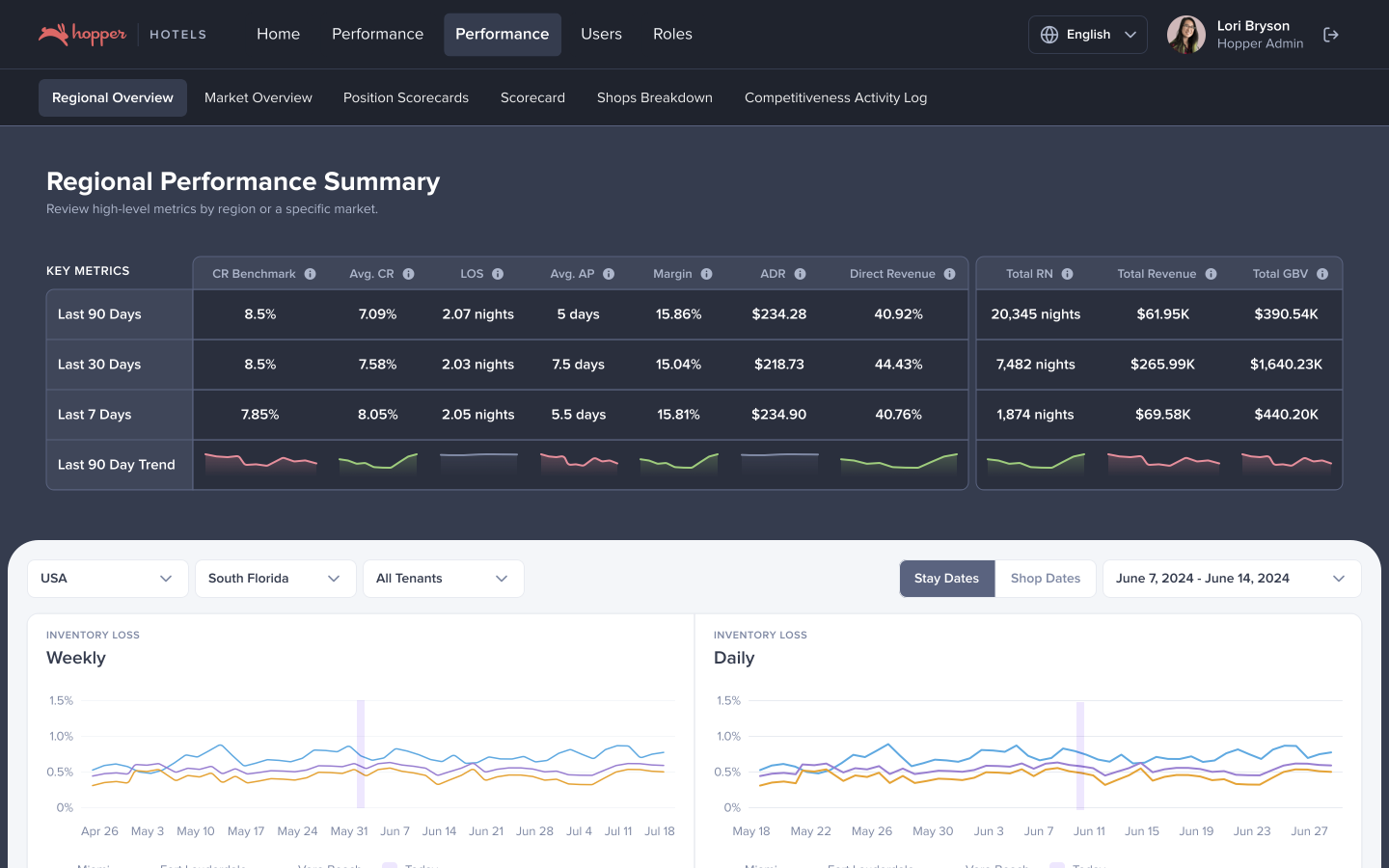
Performance metrics
User interviews revealed a critical need for actionable performance insights. I immersed myself in the daily activities of our market managers to strategise and design analytics that surfaced key booking metrics and trends, enabling hotel partners to optimize pricing and campaigns with data-backed confidence. These tools also empowered Hopper’s market managers with historical and predictive insights to guide investment and supply strategy.
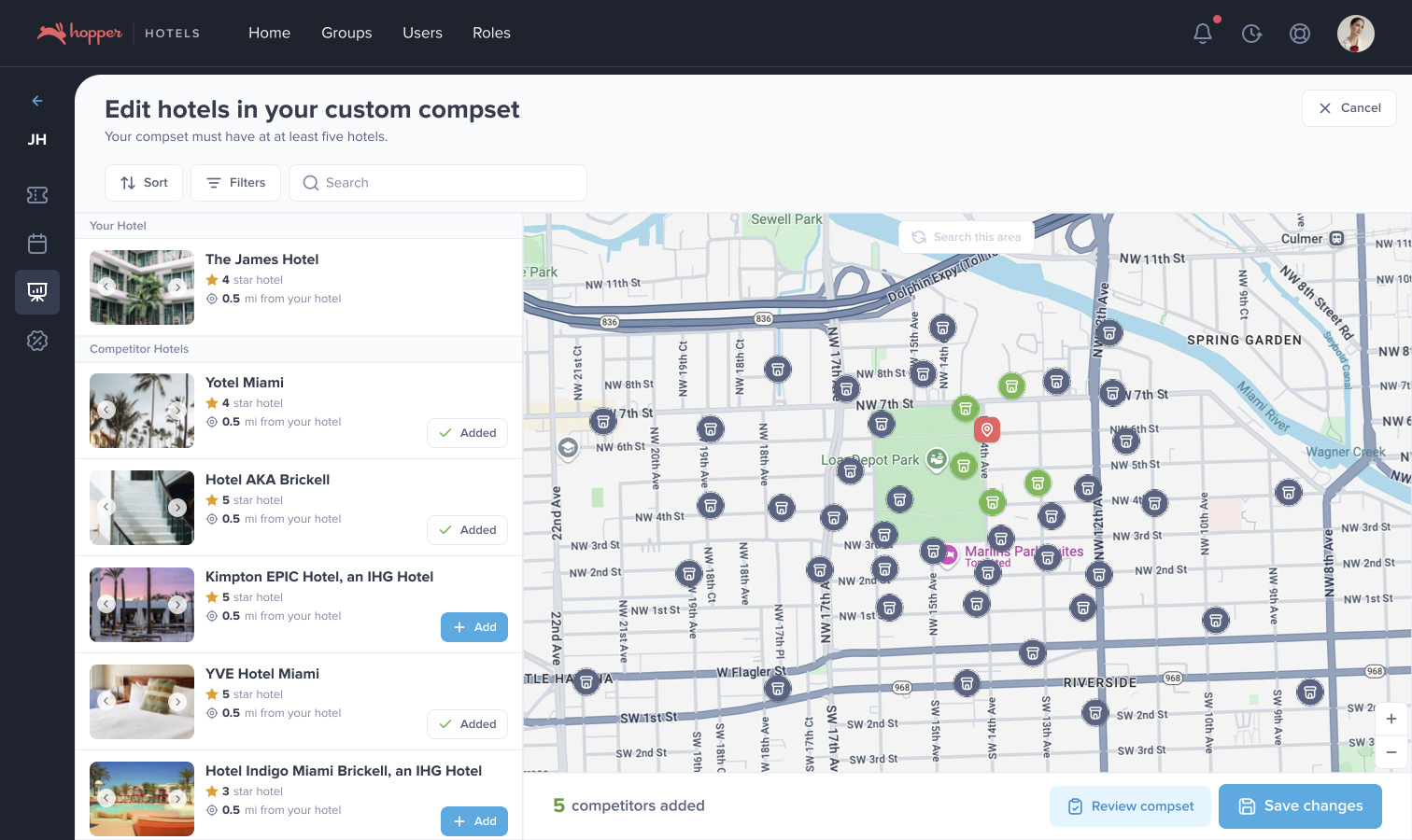
Competitor sets
This tool enables hotels and market managers to customize their compsets — allowing them to measure their performance against relevant competitors. Customization is key, as it lets users define compsets based on specific attributes such as location, target audience, and aspirational benchmarks they aim to compete with.
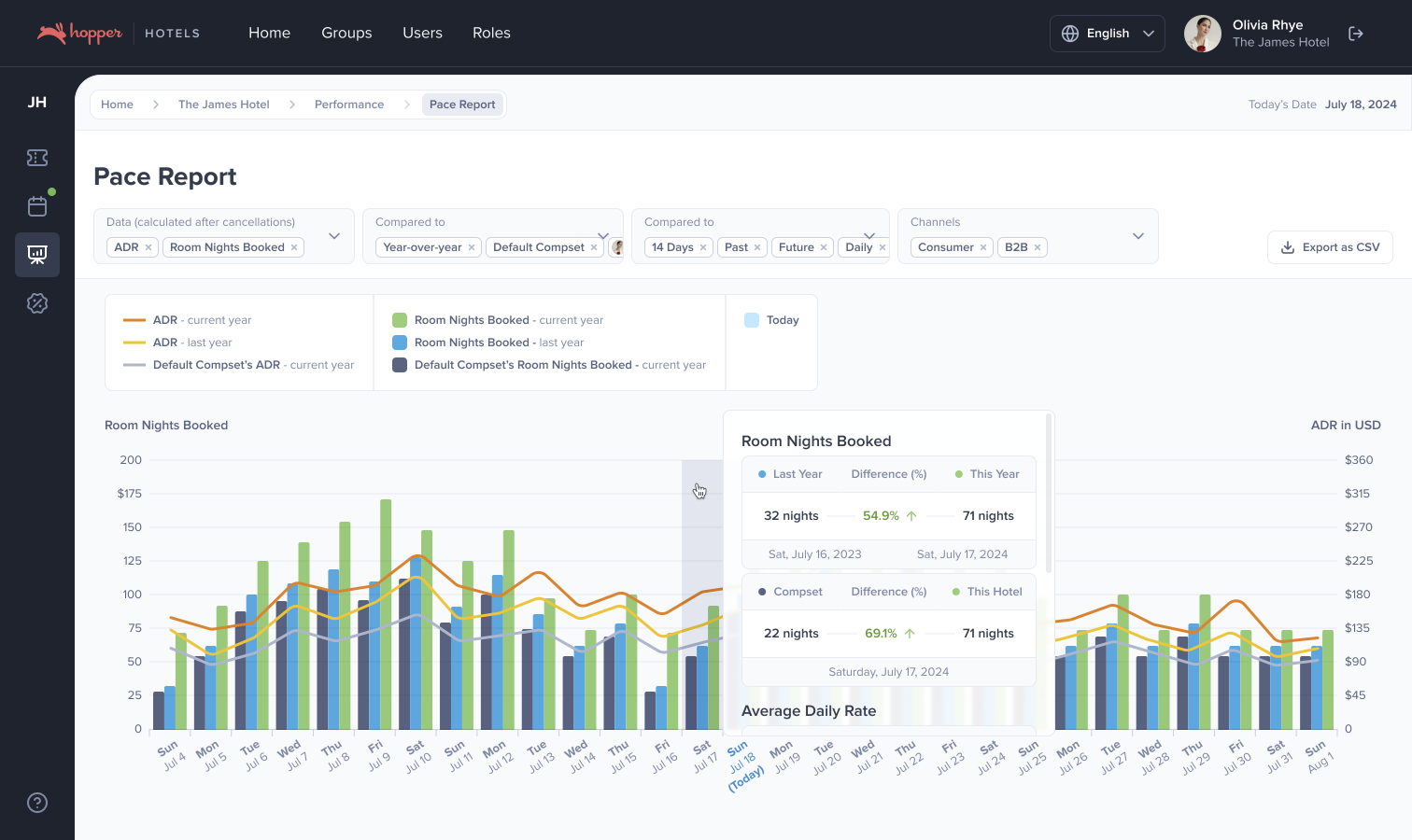
Pace report
User interviews revealed a critical need for actionable performance insights. I immersed myself in the daily activities of our market managers to strategise and design analytics that surfaced key booking metrics and trends, enabling hotel partners to optimize pricing and campaigns with data-backed confidence. These tools also empowered Hopper’s market managers with historical and predictive insights to guide investment and supply strategy.
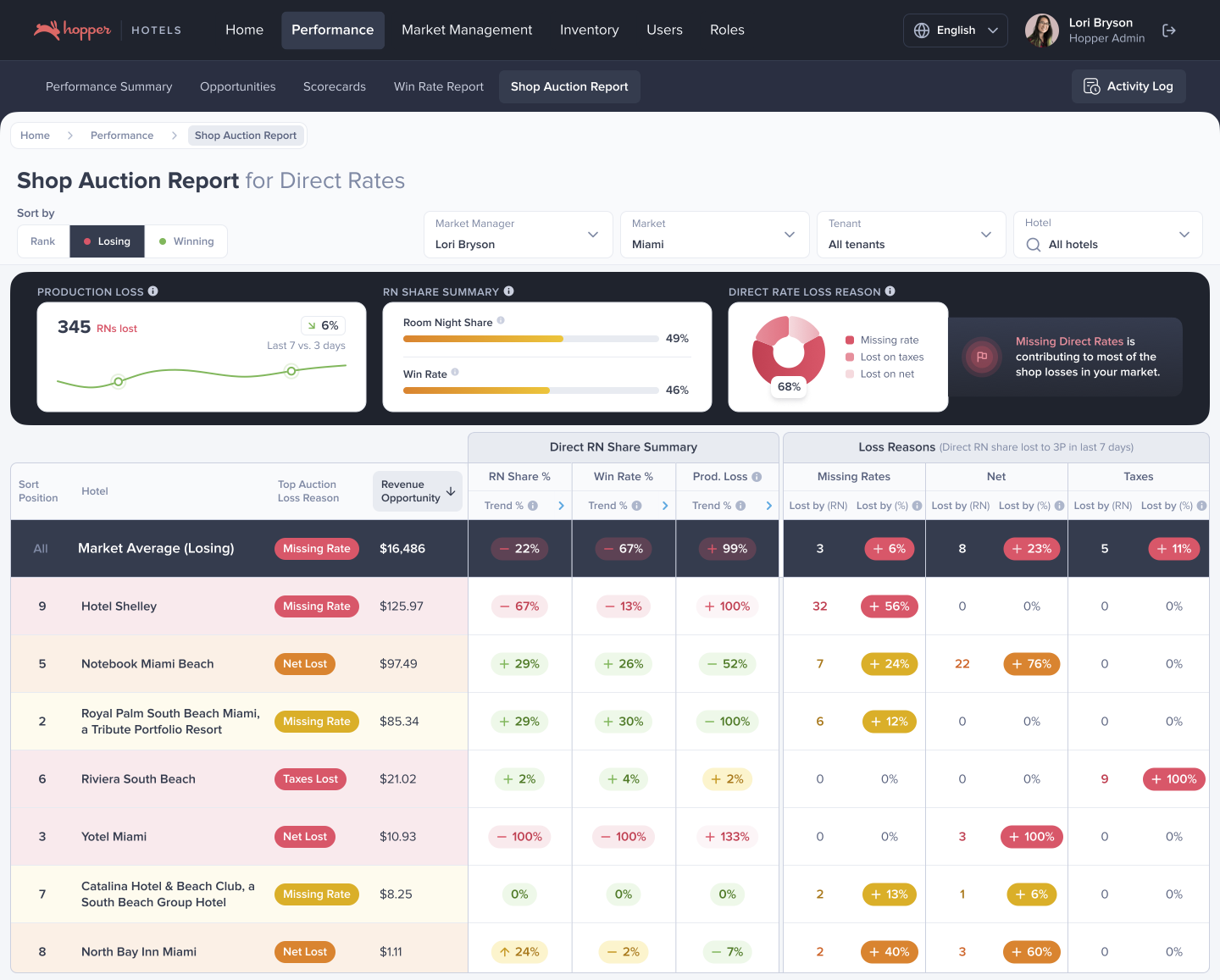
Shop auction report
The shop auction report provides a detailed view of how often a property appears in searches and how competitive their rates are compared to similar listings. These metrics help hotels and market managers understand visibility, pricing competitiveness, and conversion performance — allowing them to adjust rates and campaigns to improve both exposure and revenue.
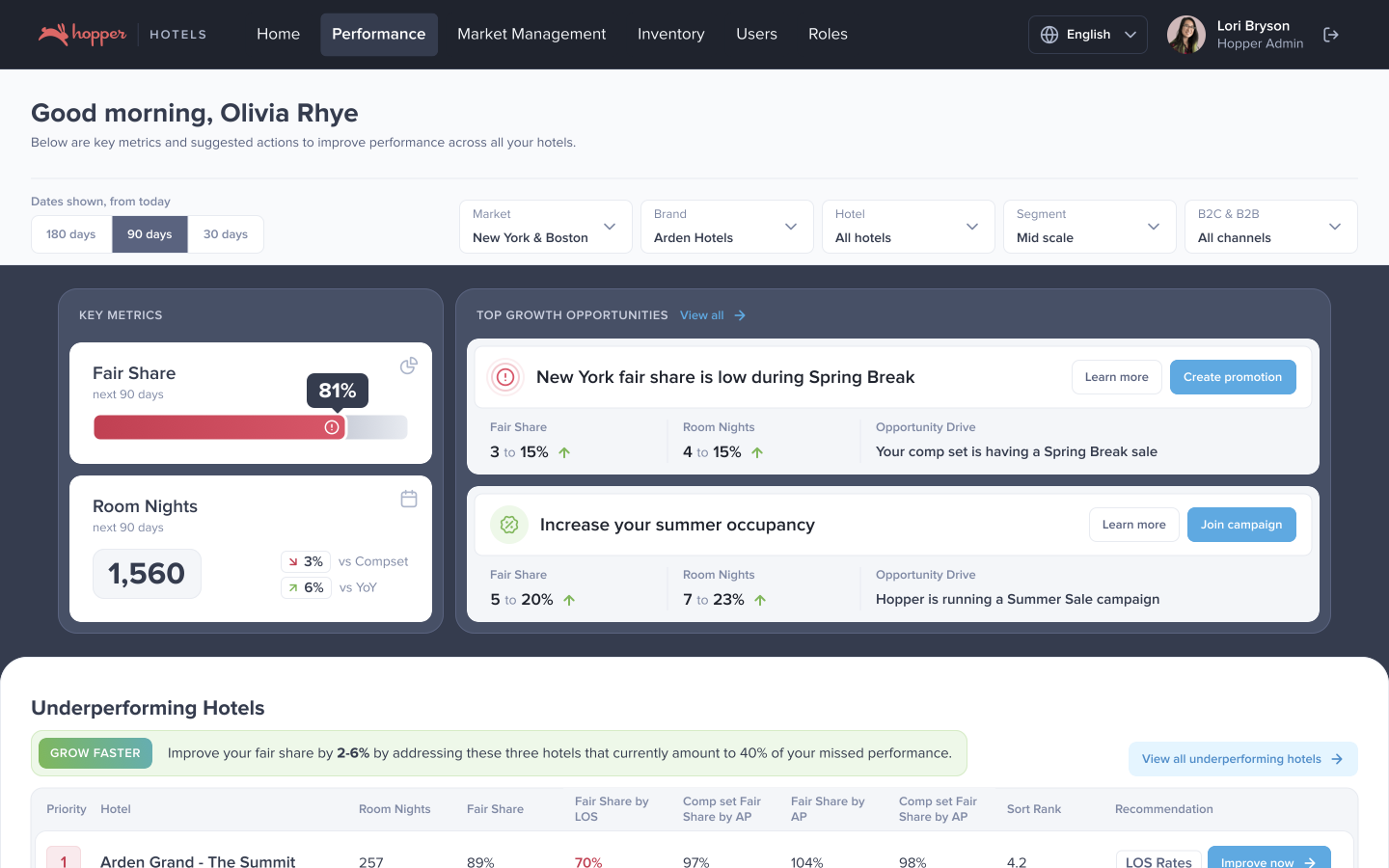
Opportunities
It’s easy for users to feel overwhelmed by multiple tools and performance metrics. To simplify decision-making, we designed an Opportunities Center — a centralized space that provides data-backed recommendations. Insights from pace reports, compsets, and shop auction reports are aggregated to surface clear, actionable suggestions for improving booking performance and revenue — all within Hopper’s existing suite of tools.